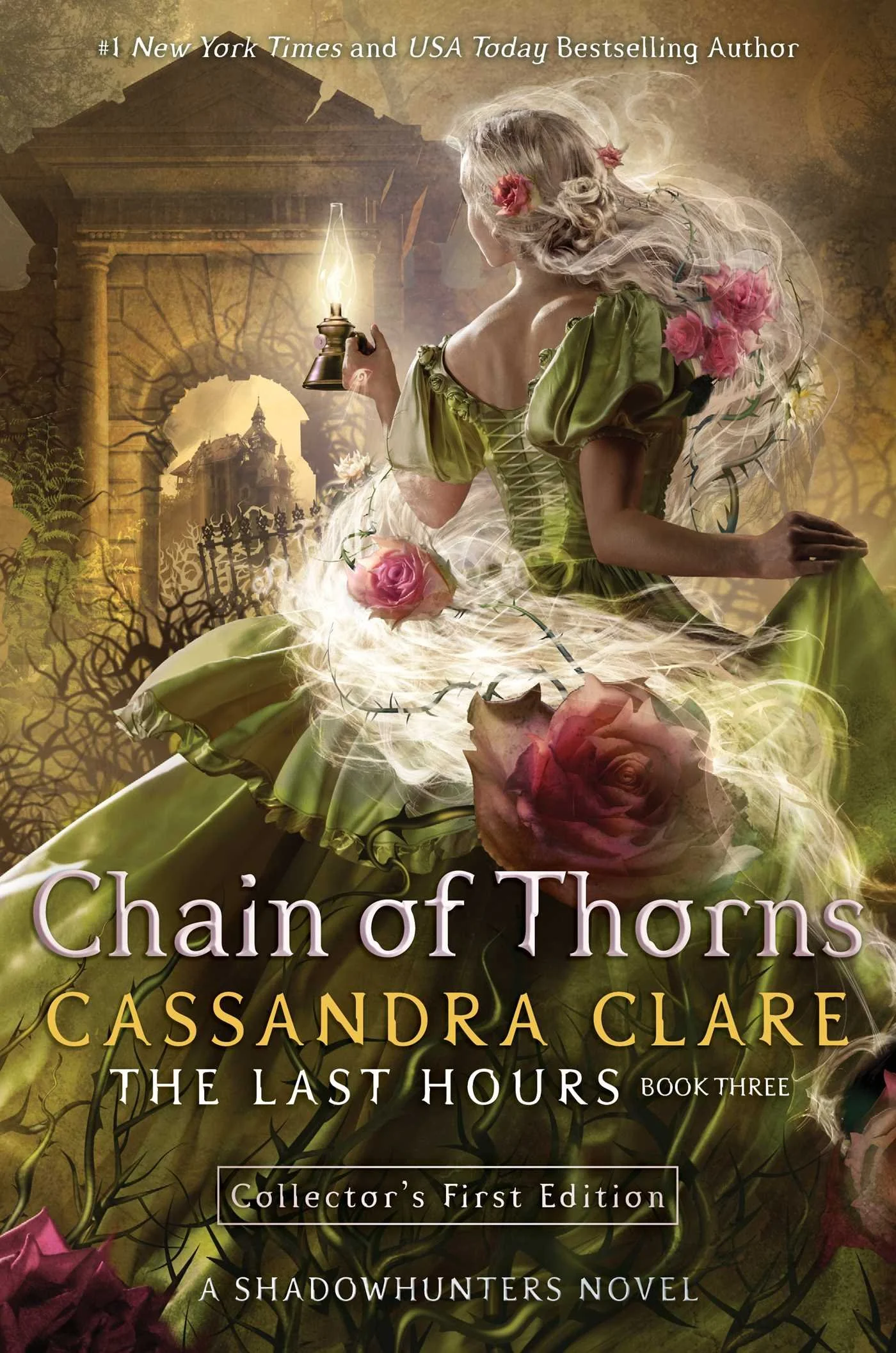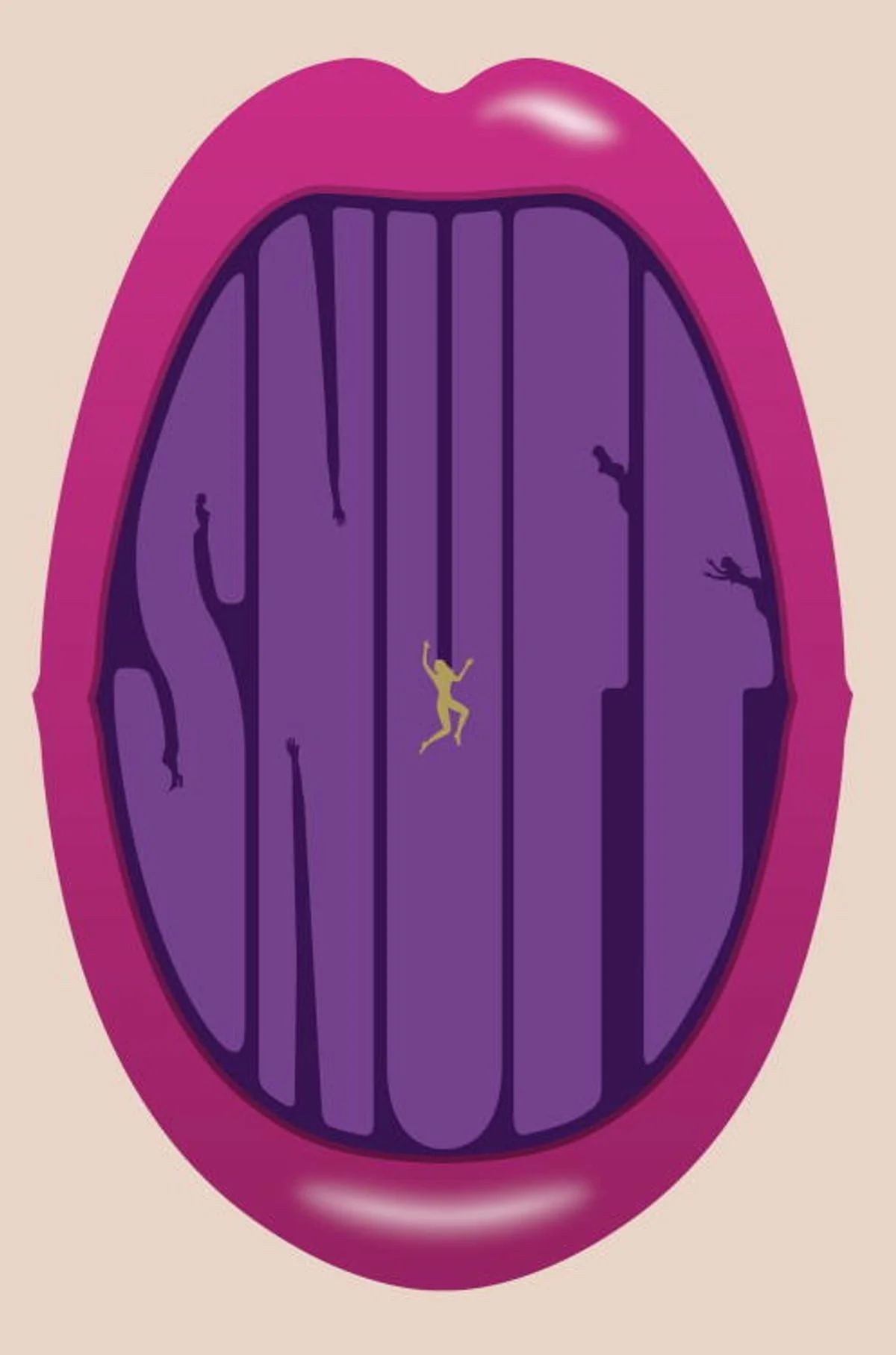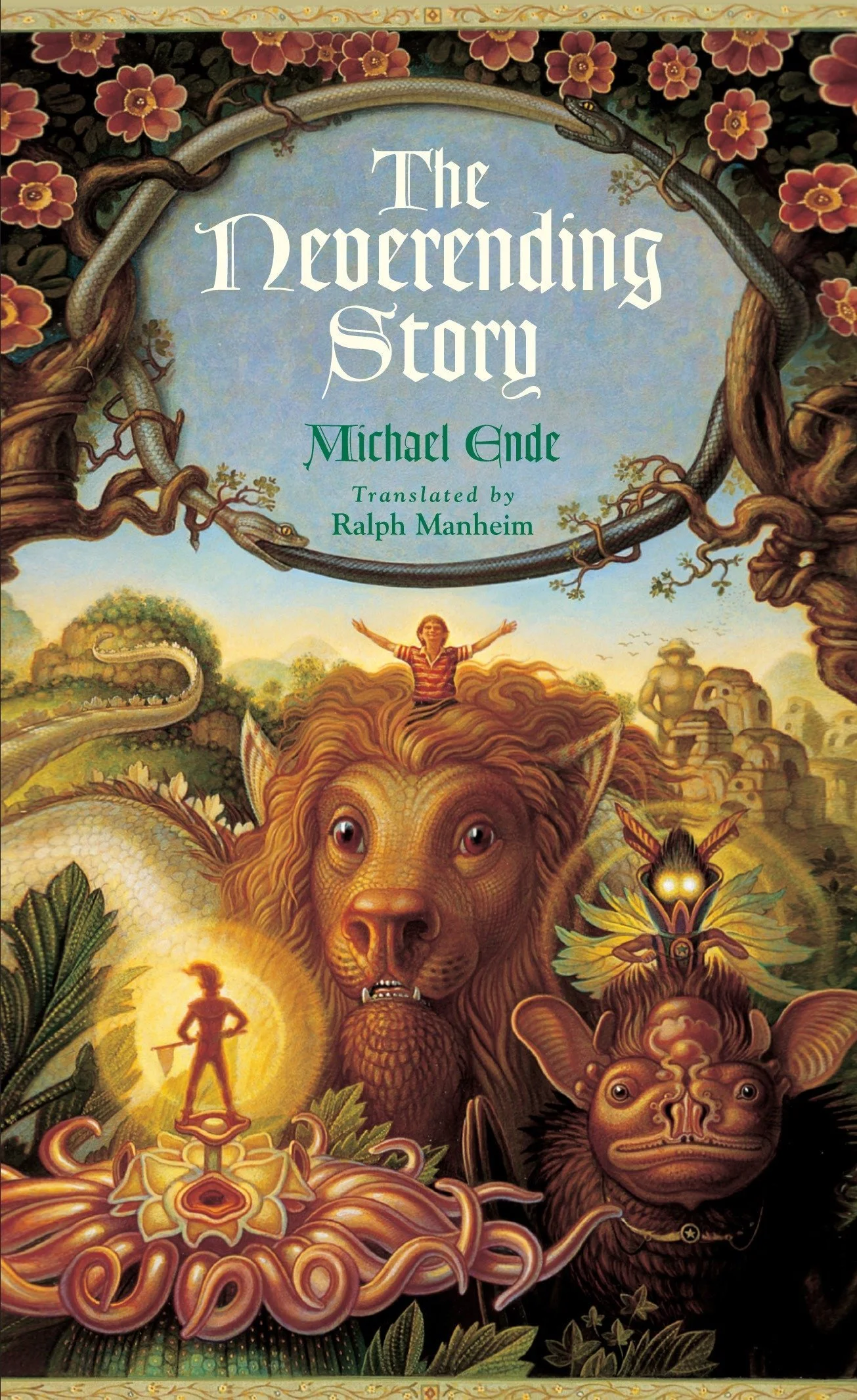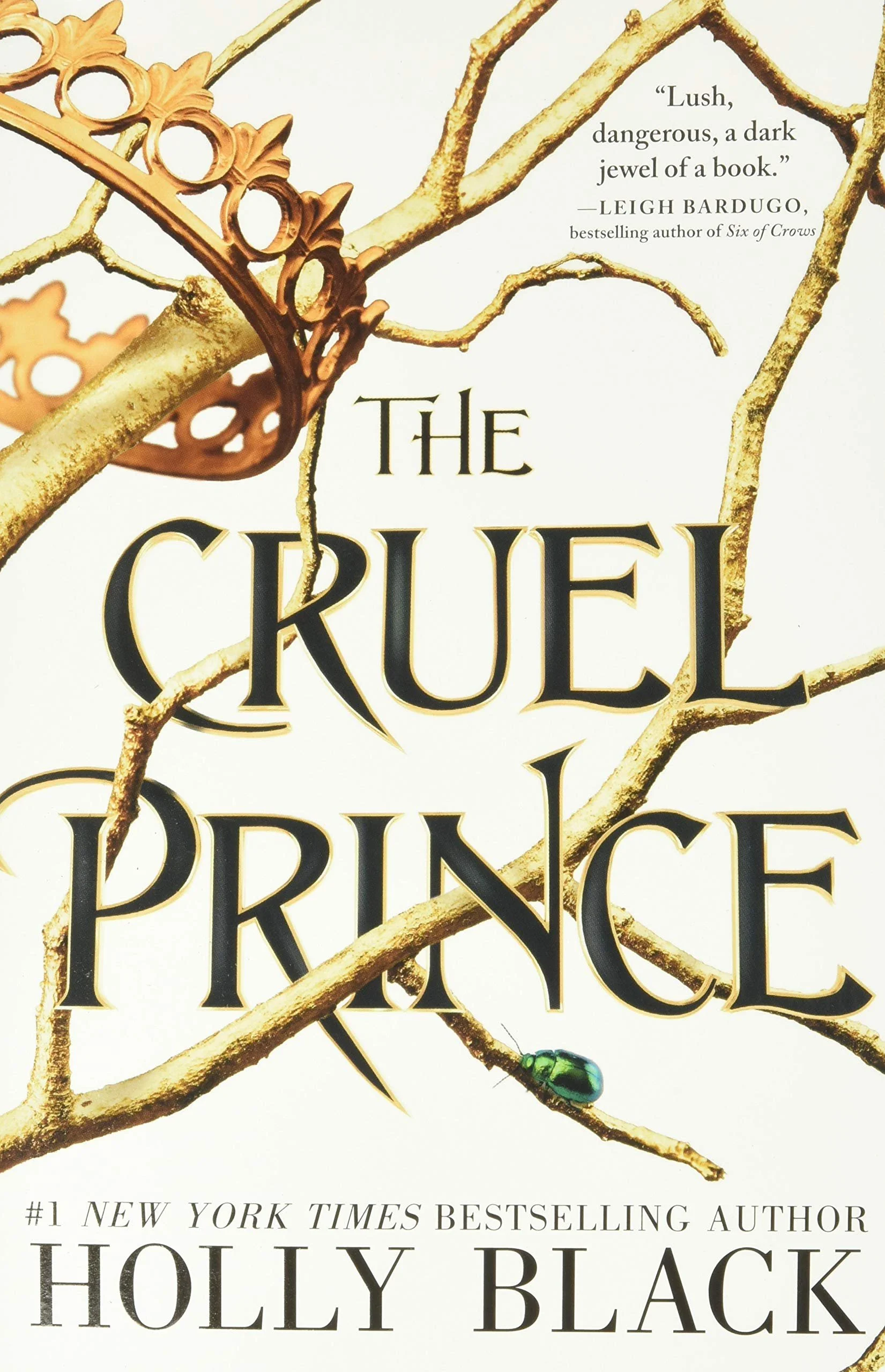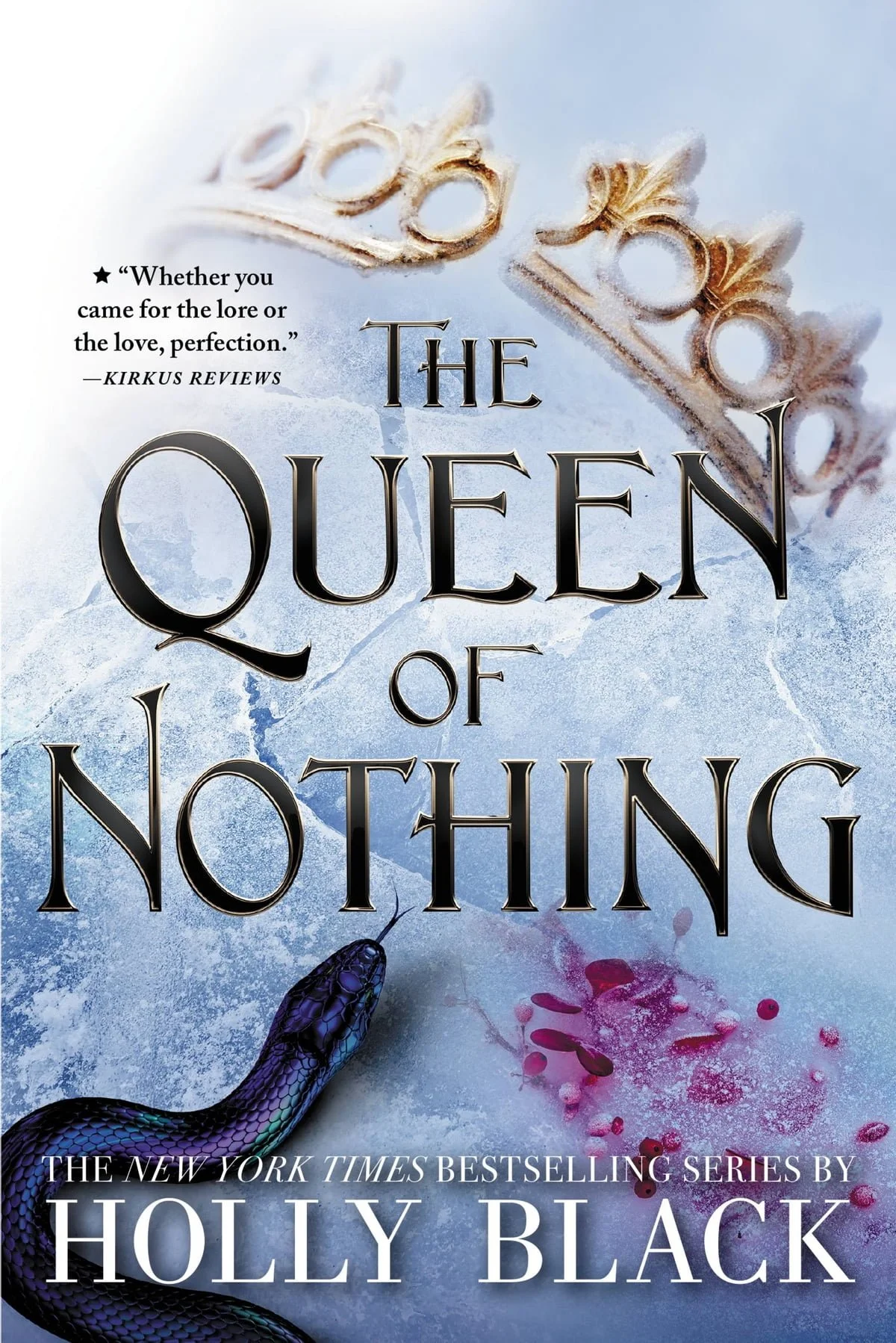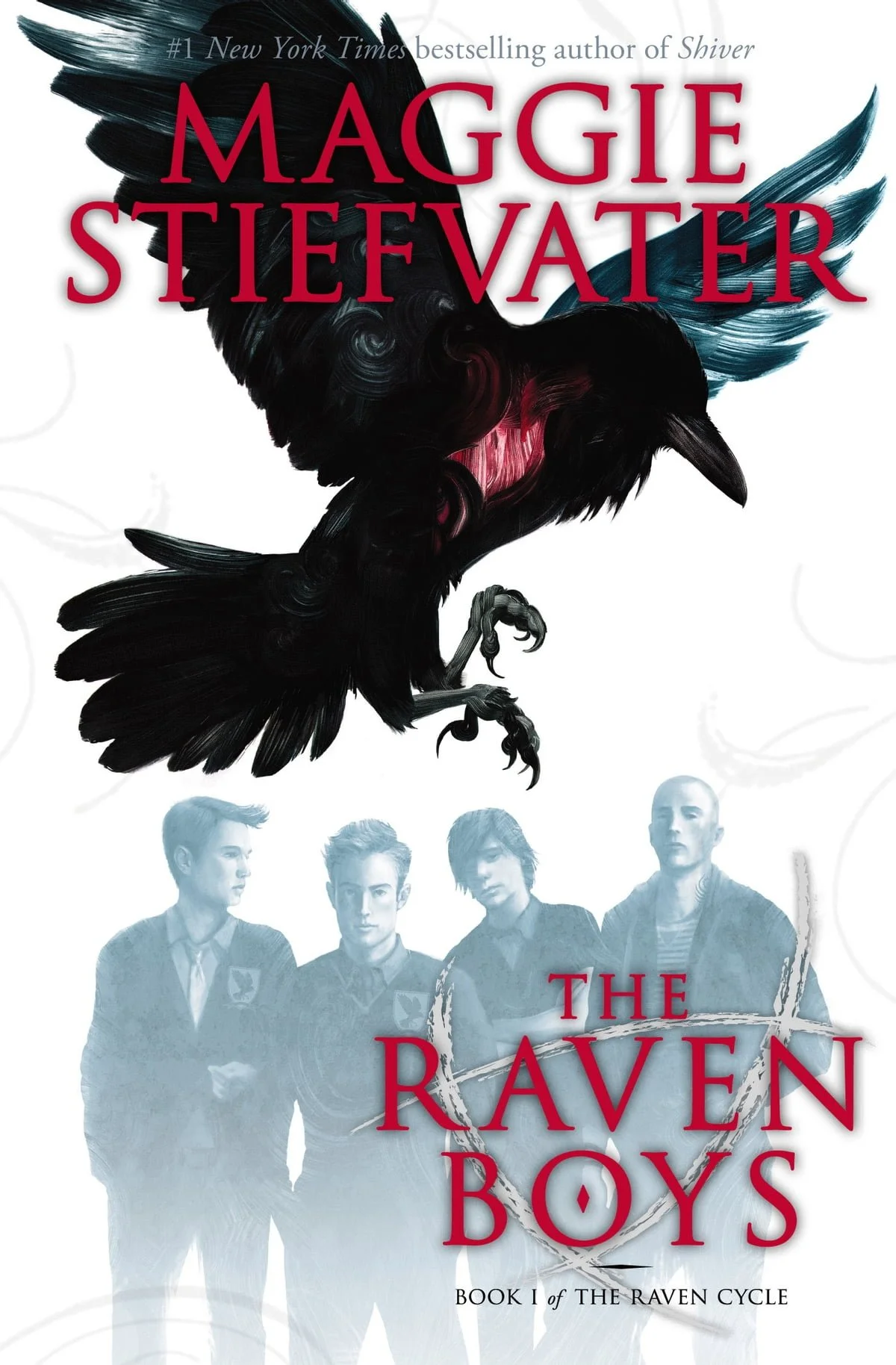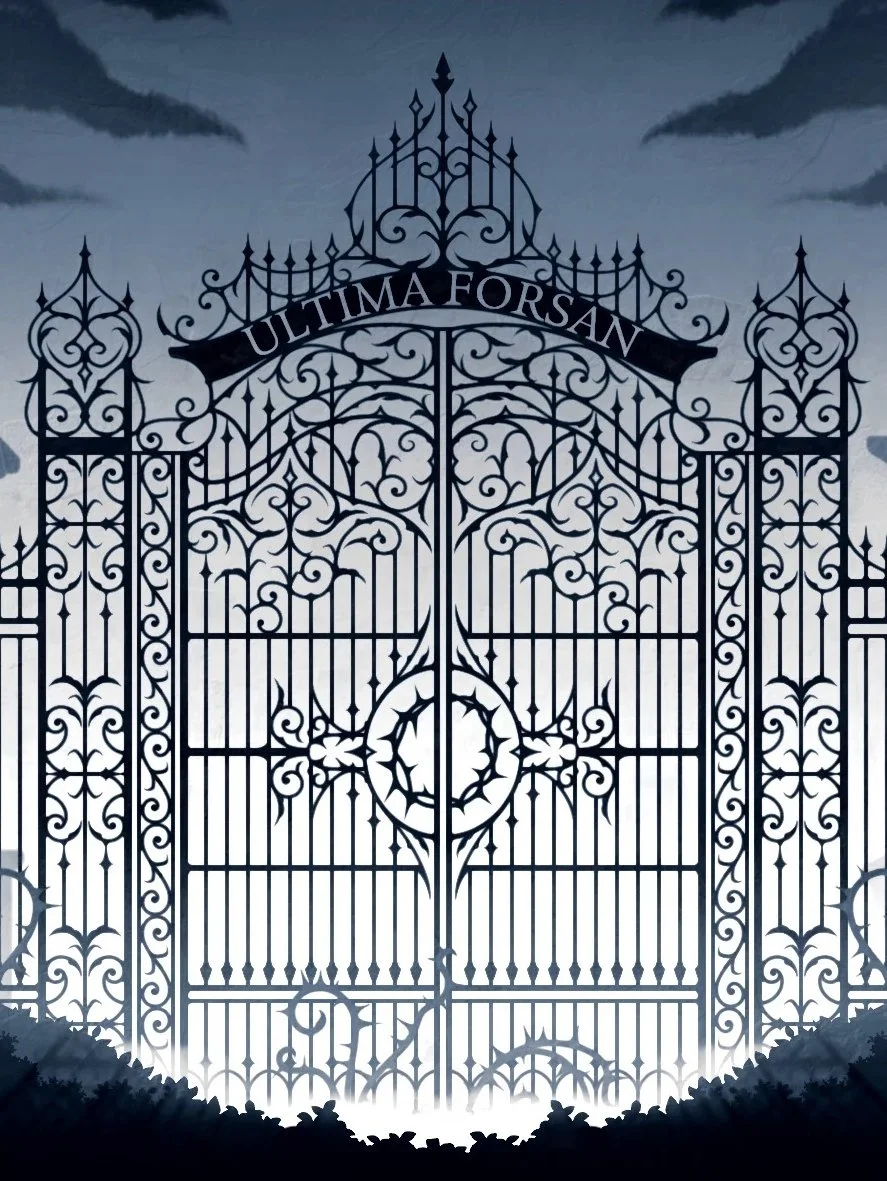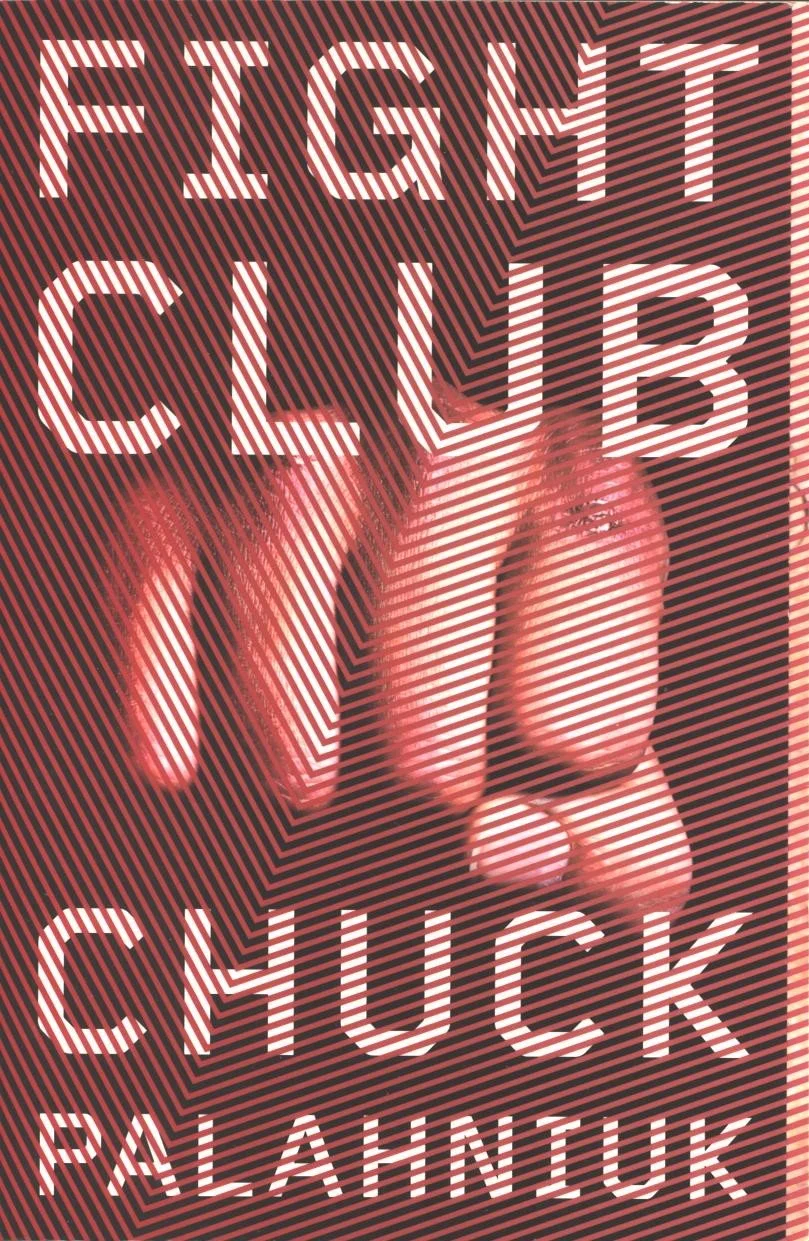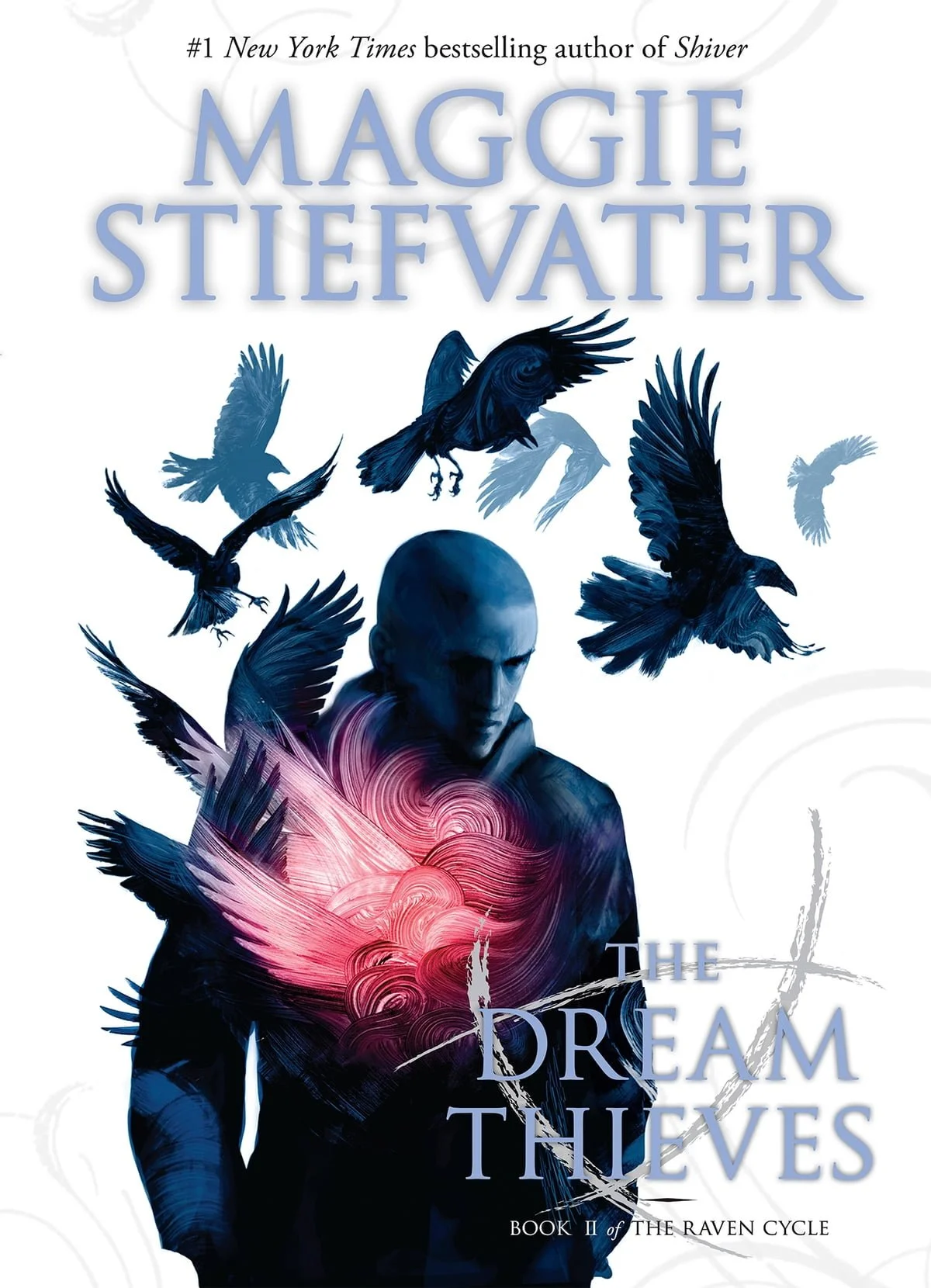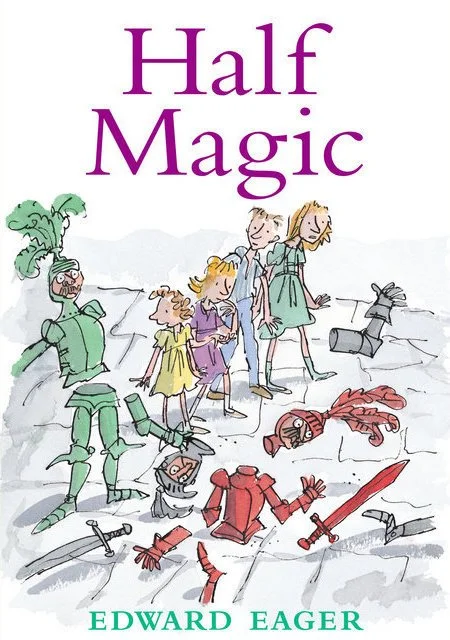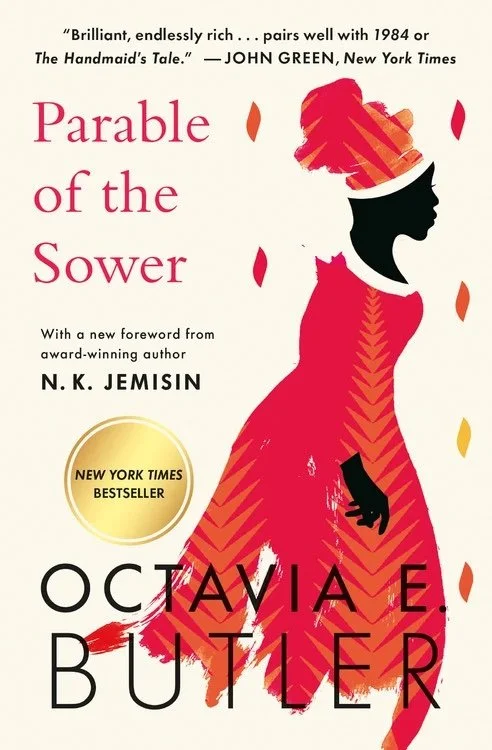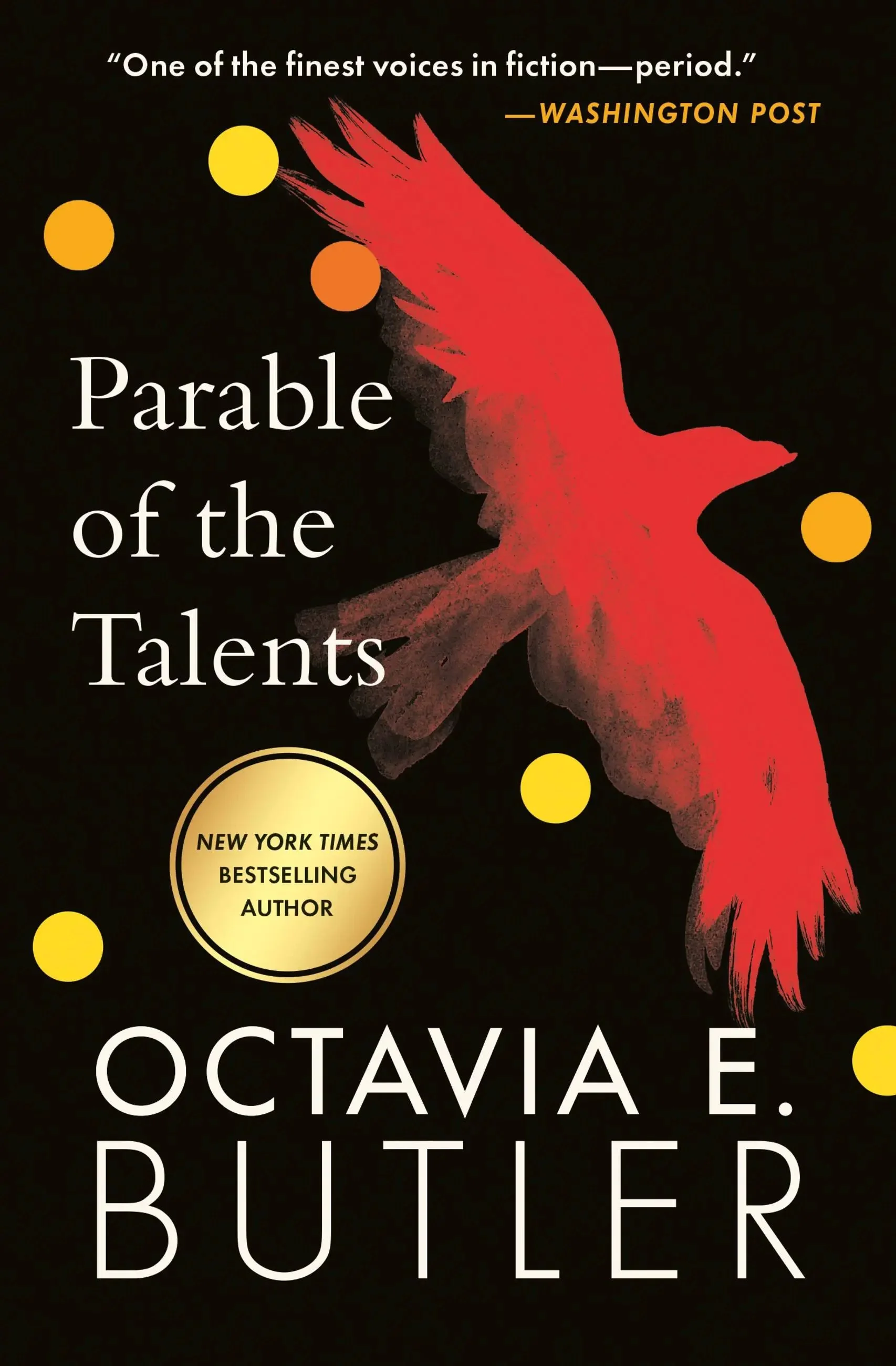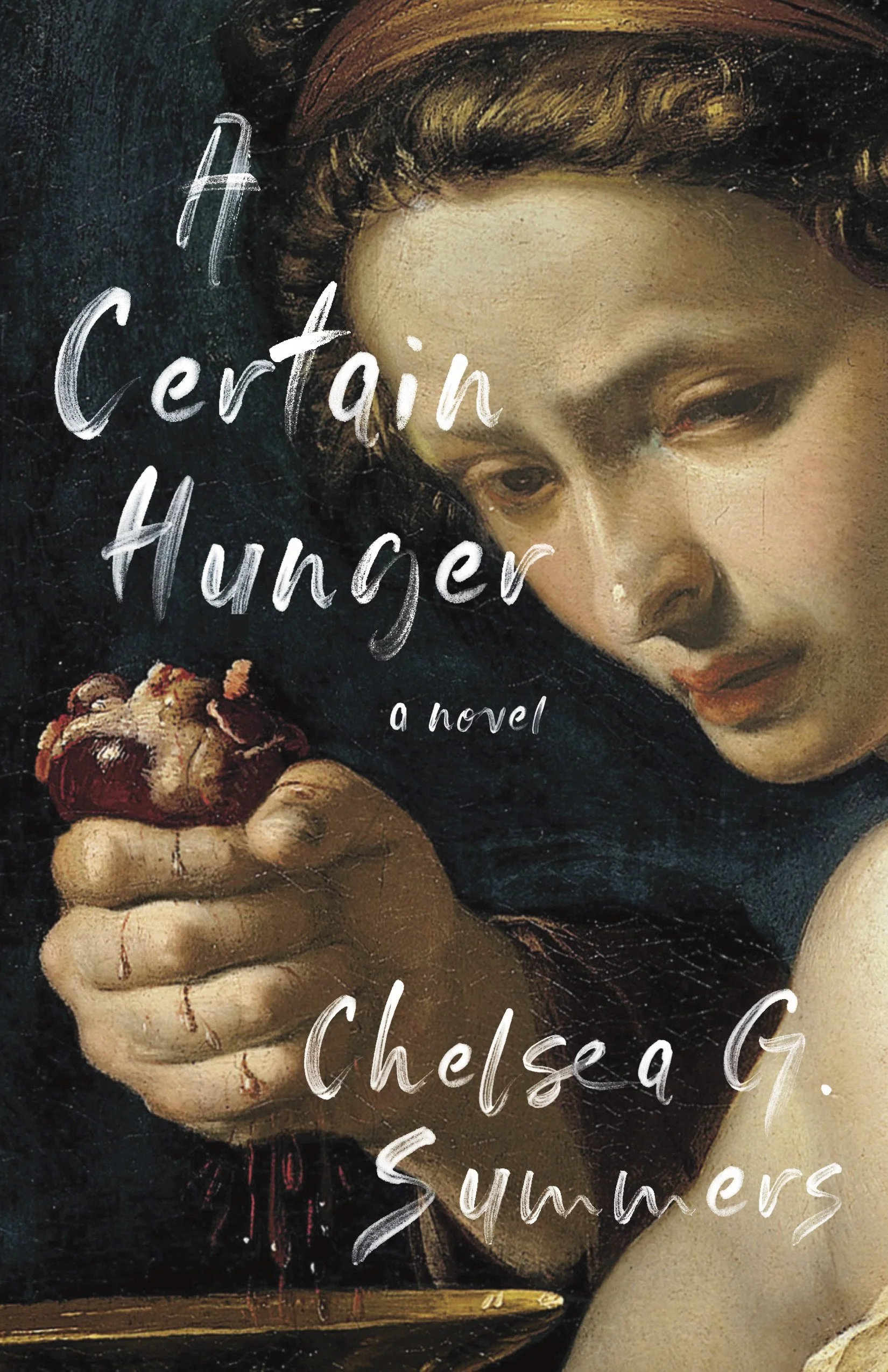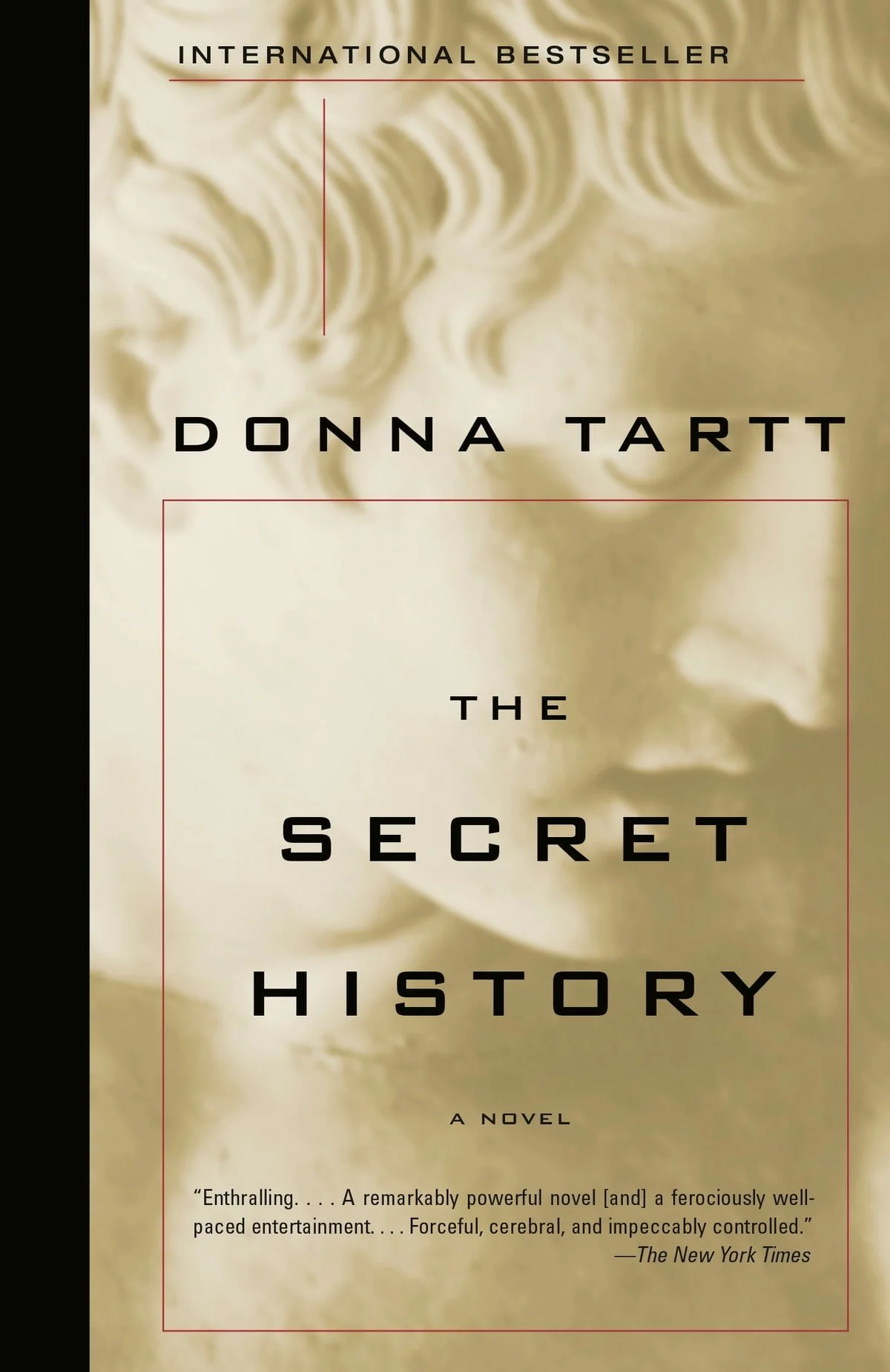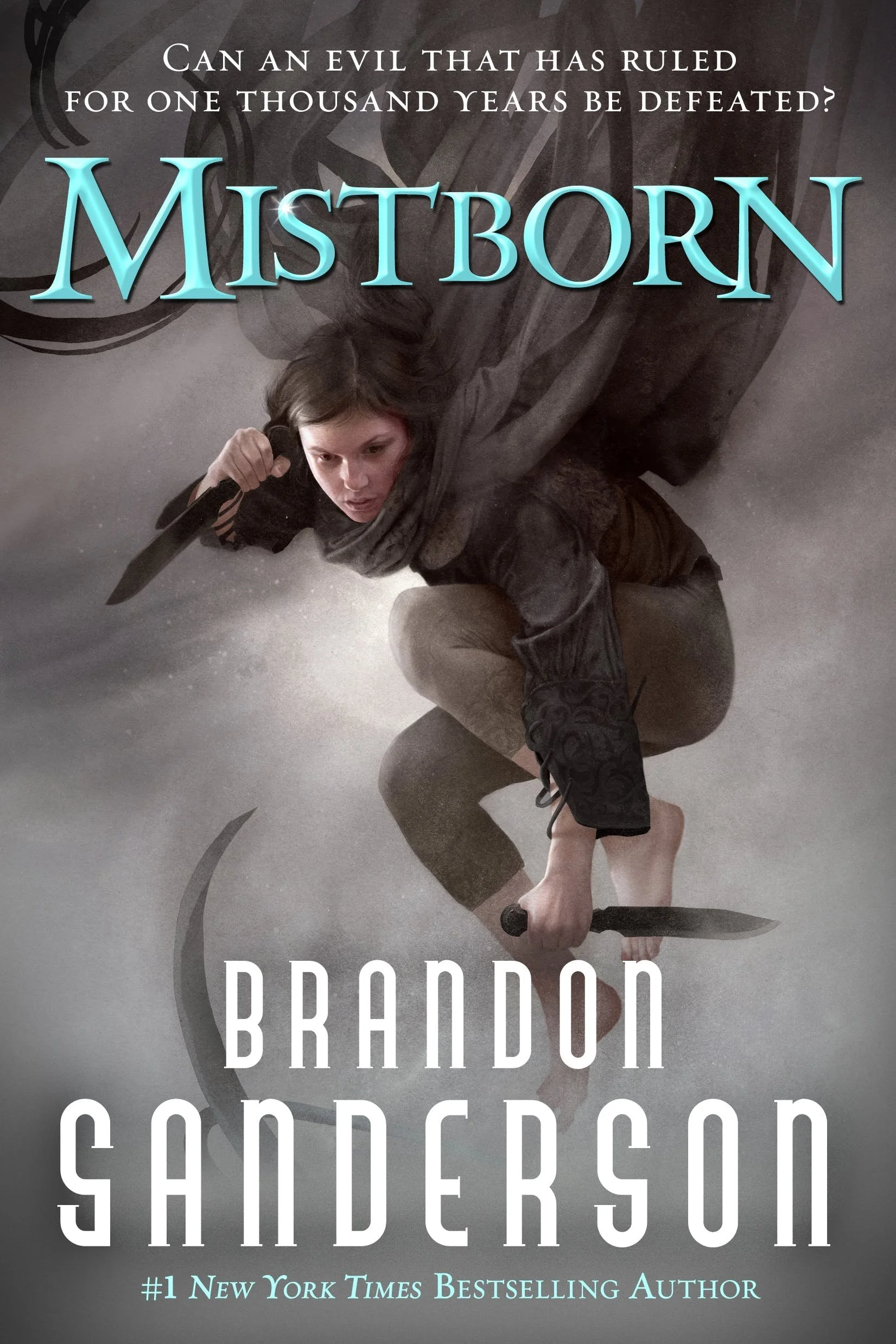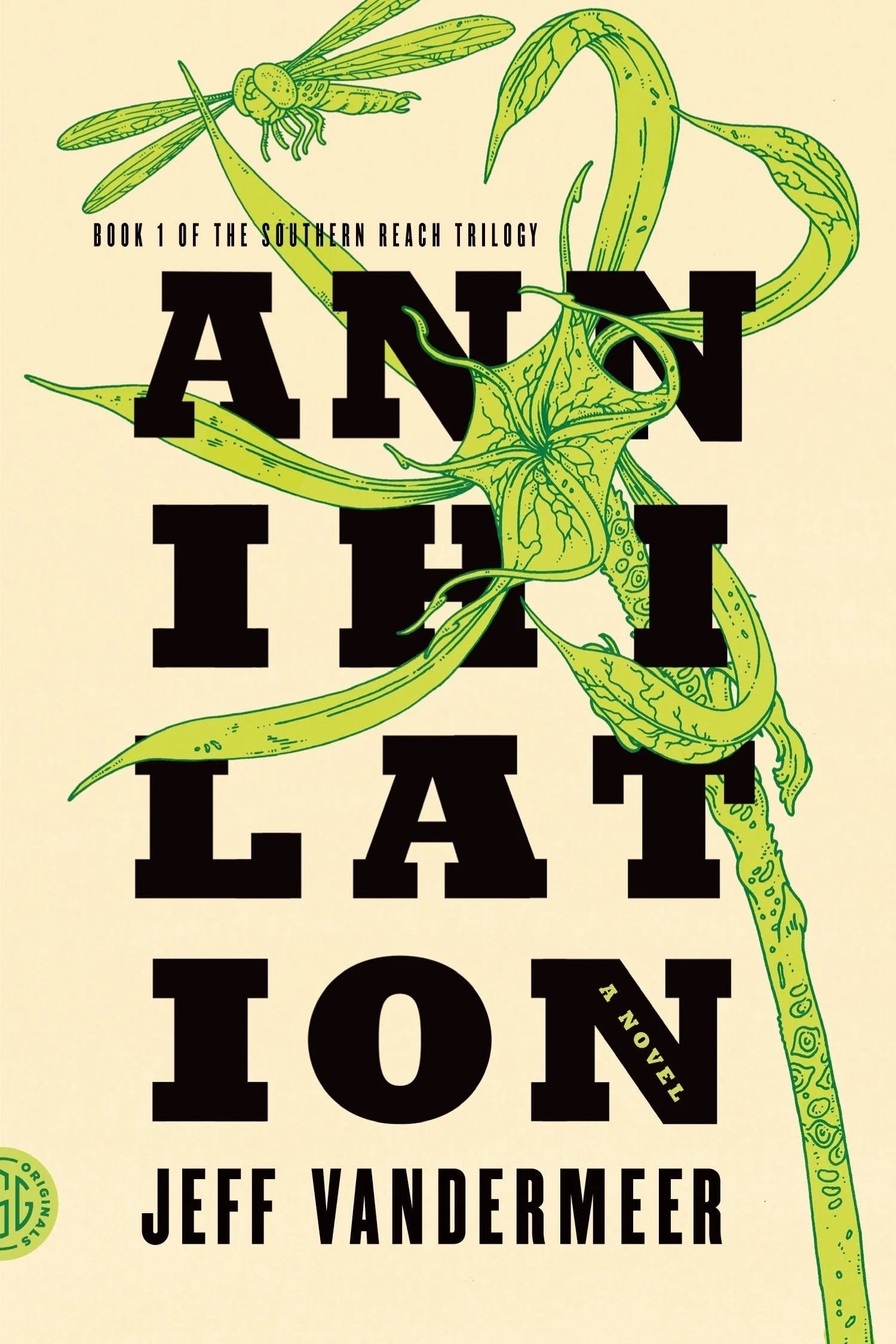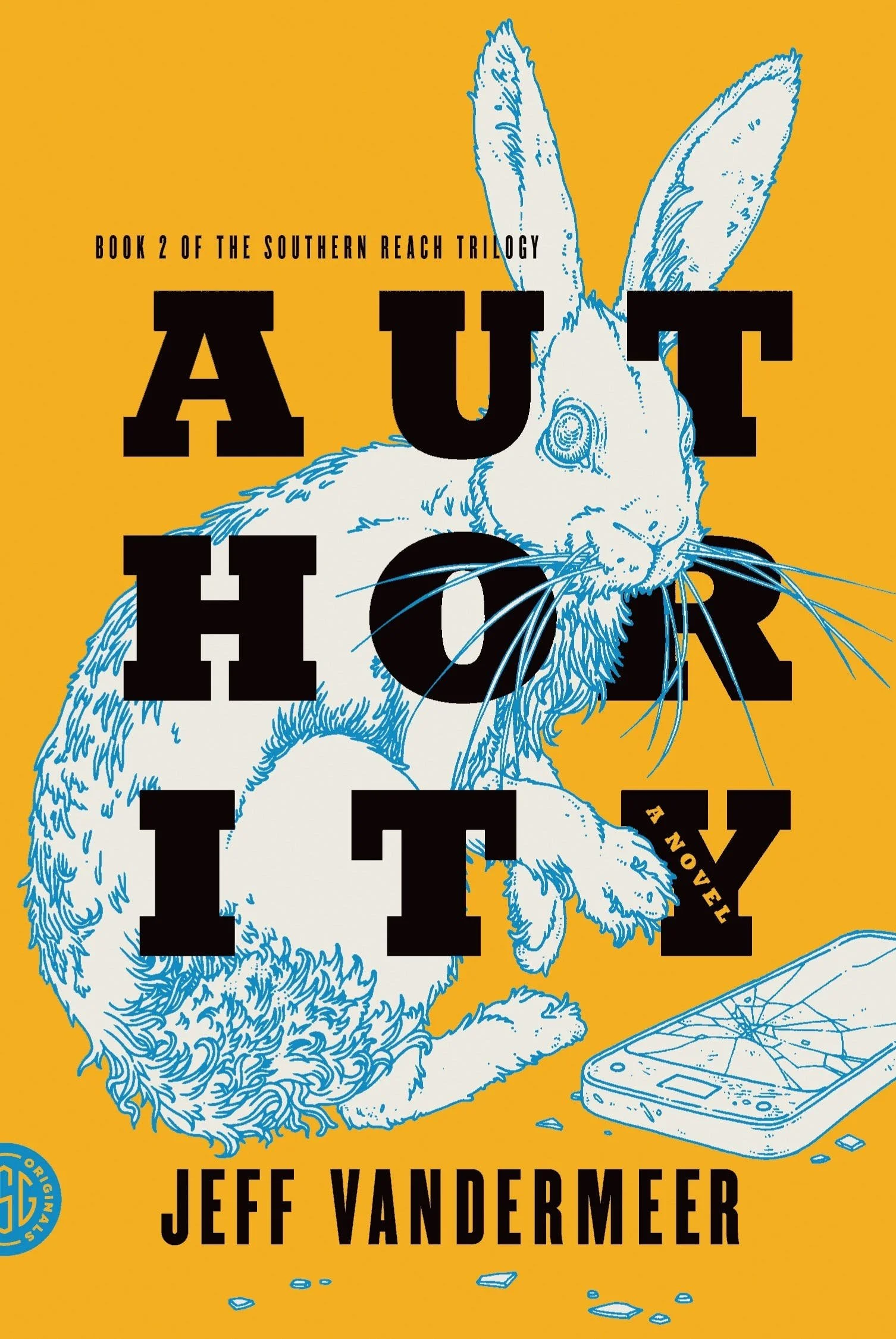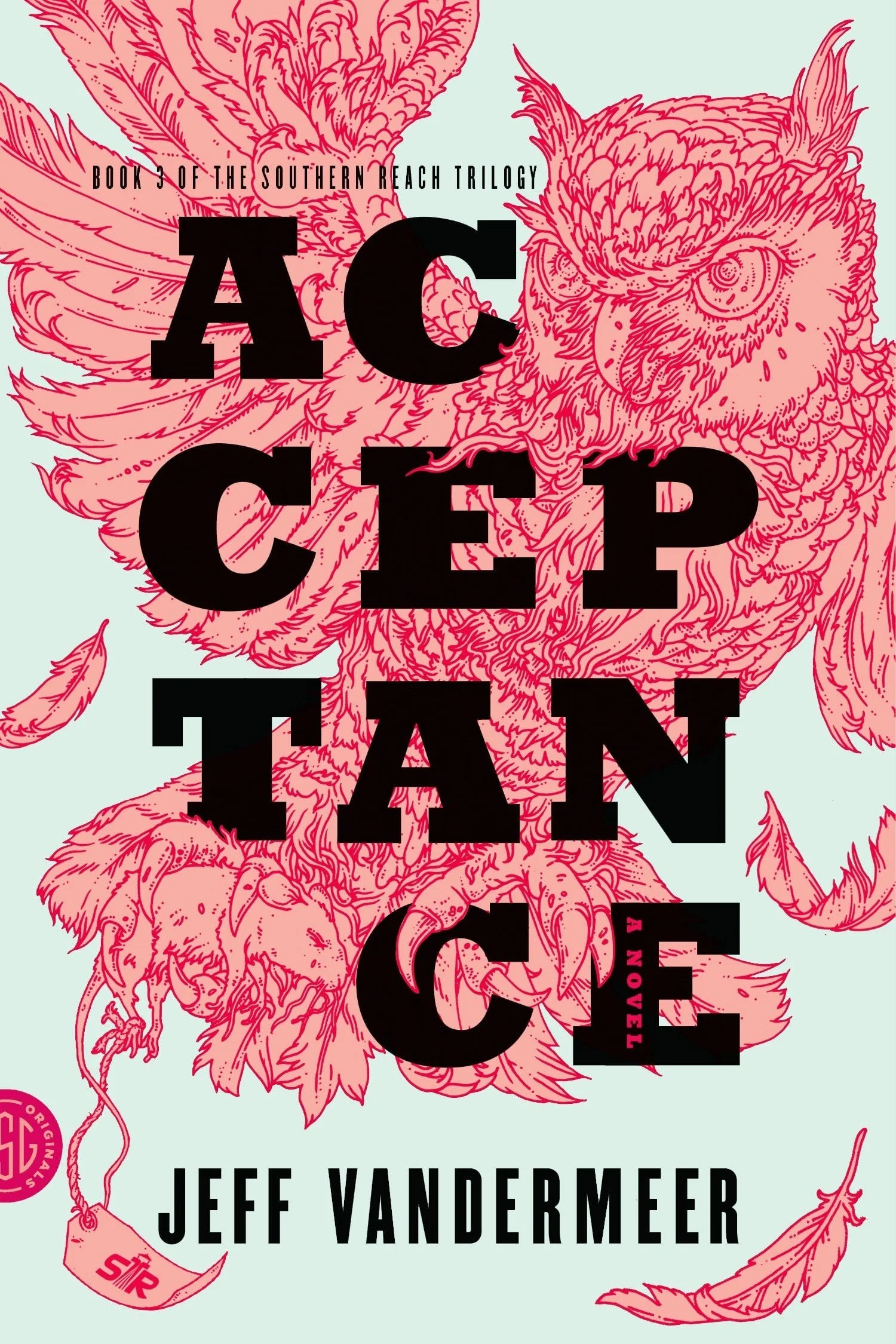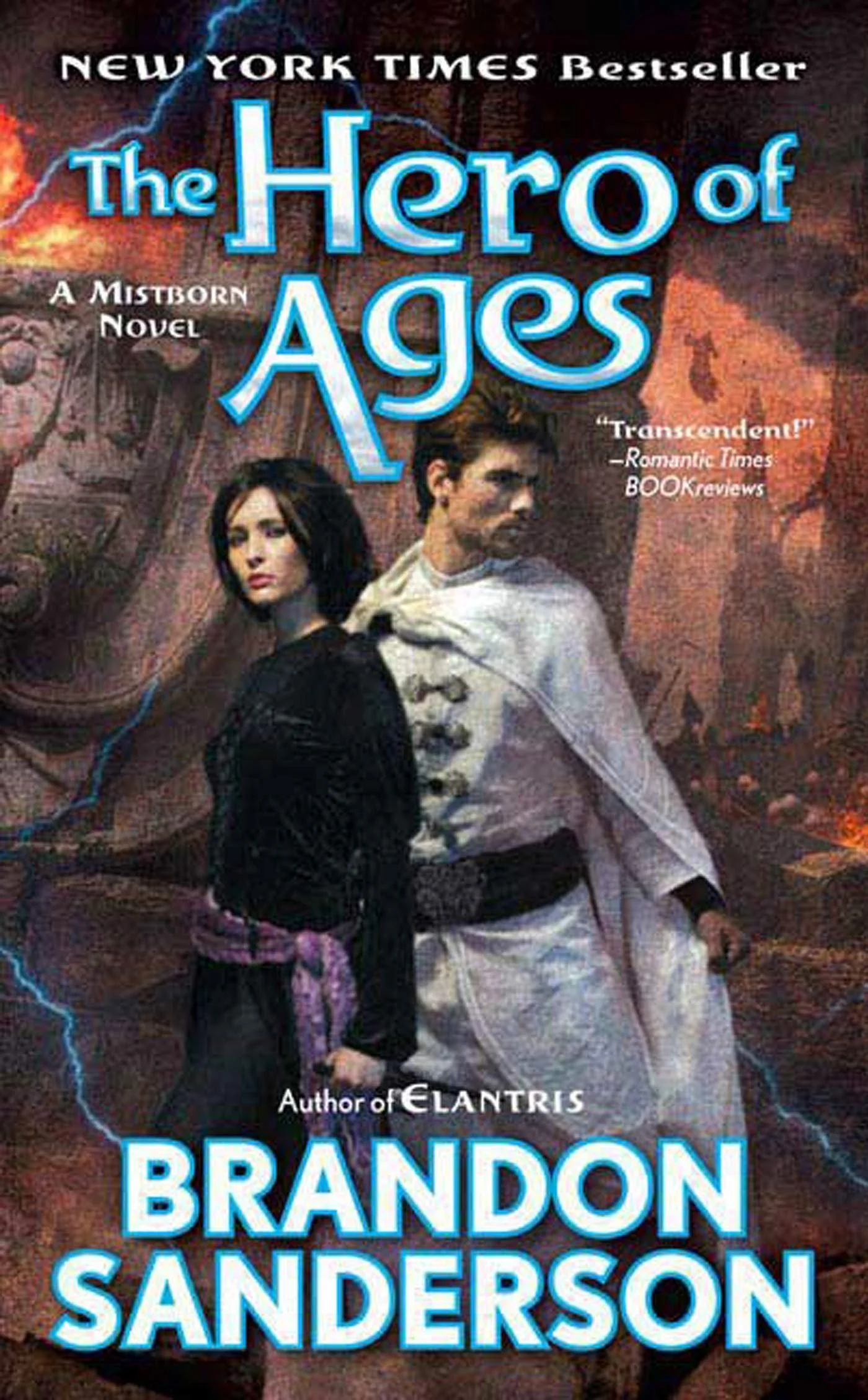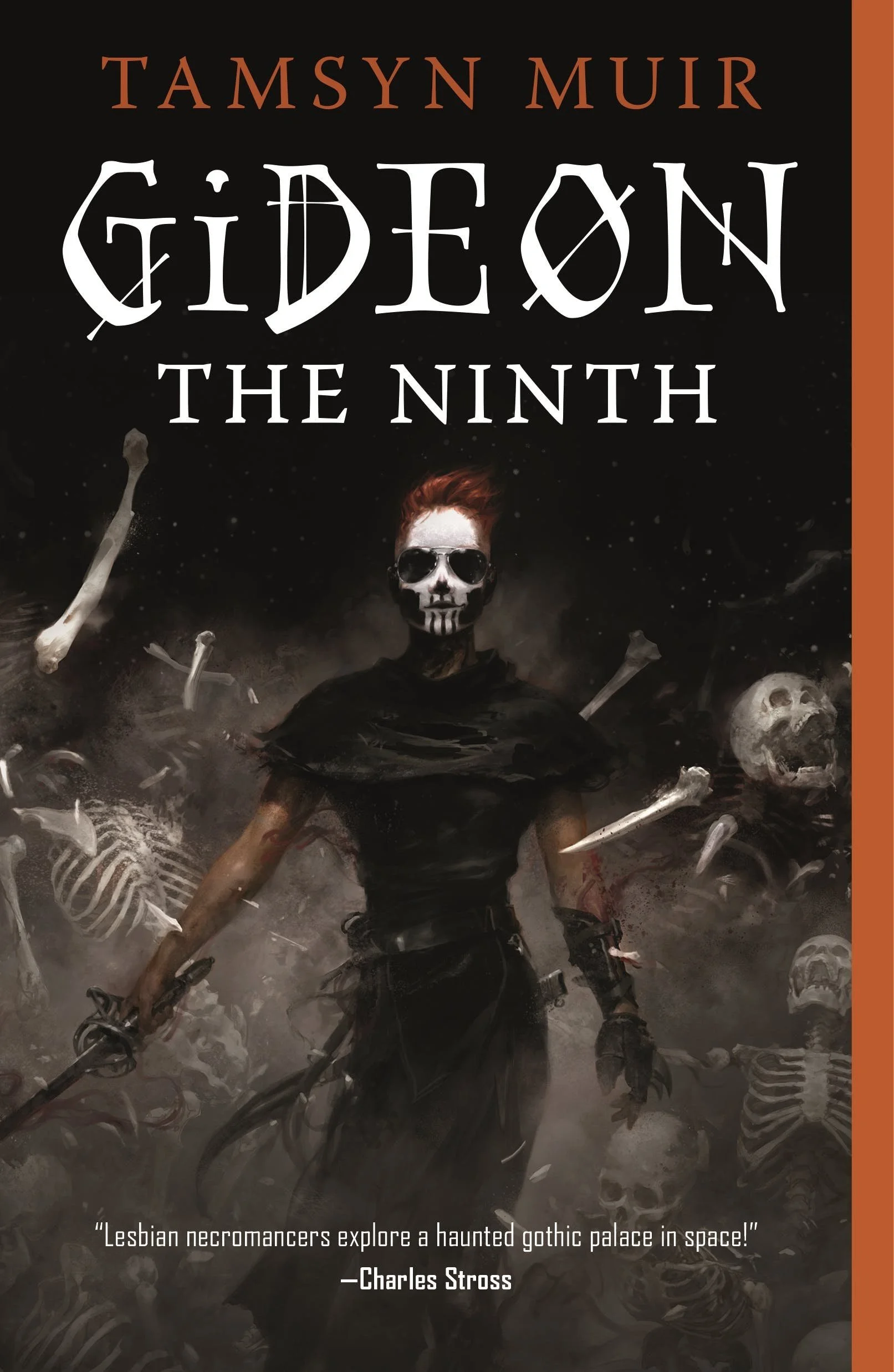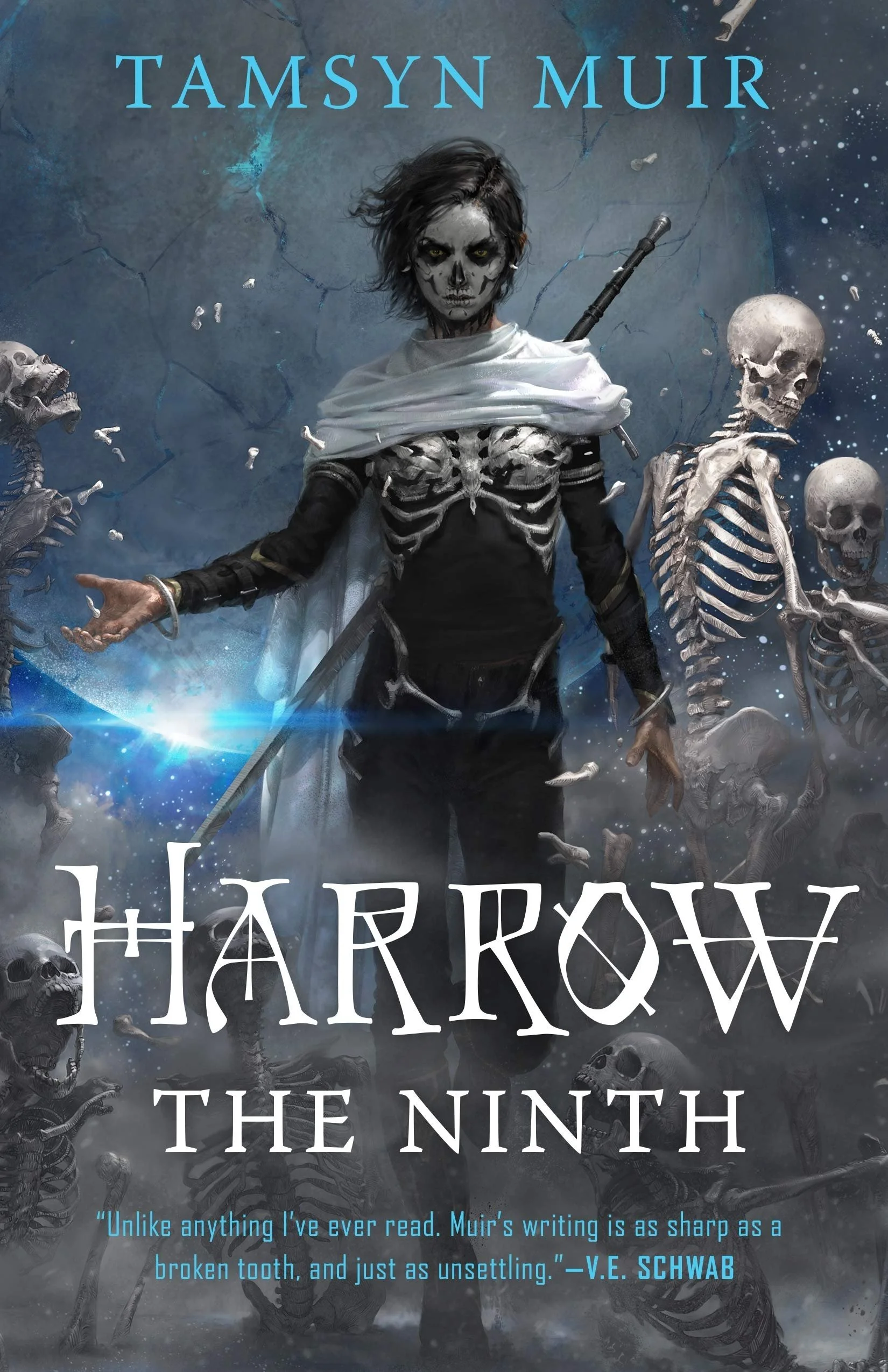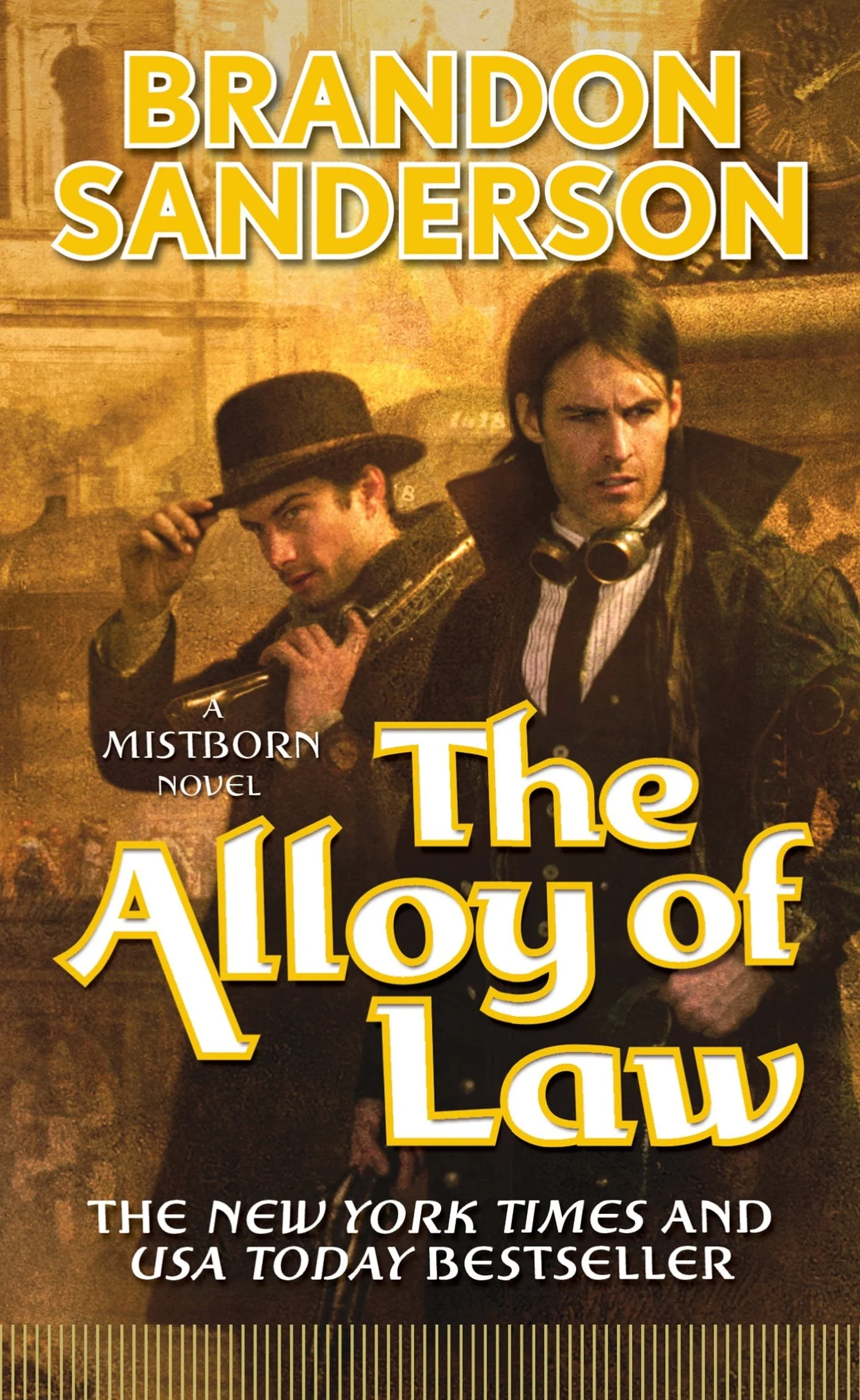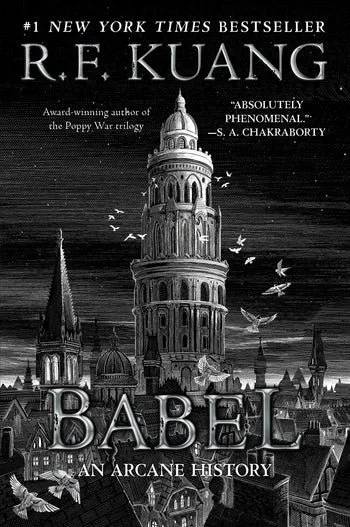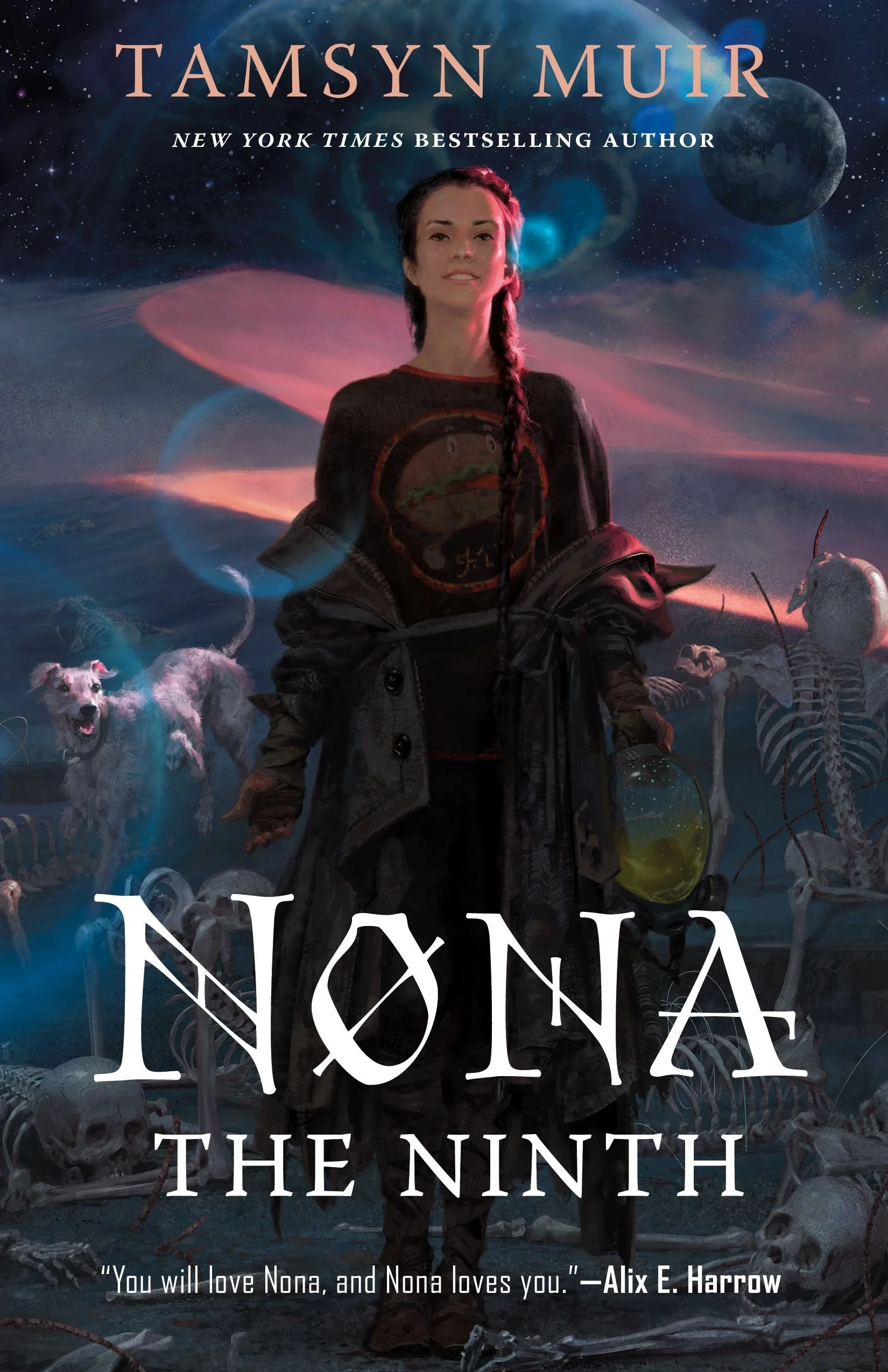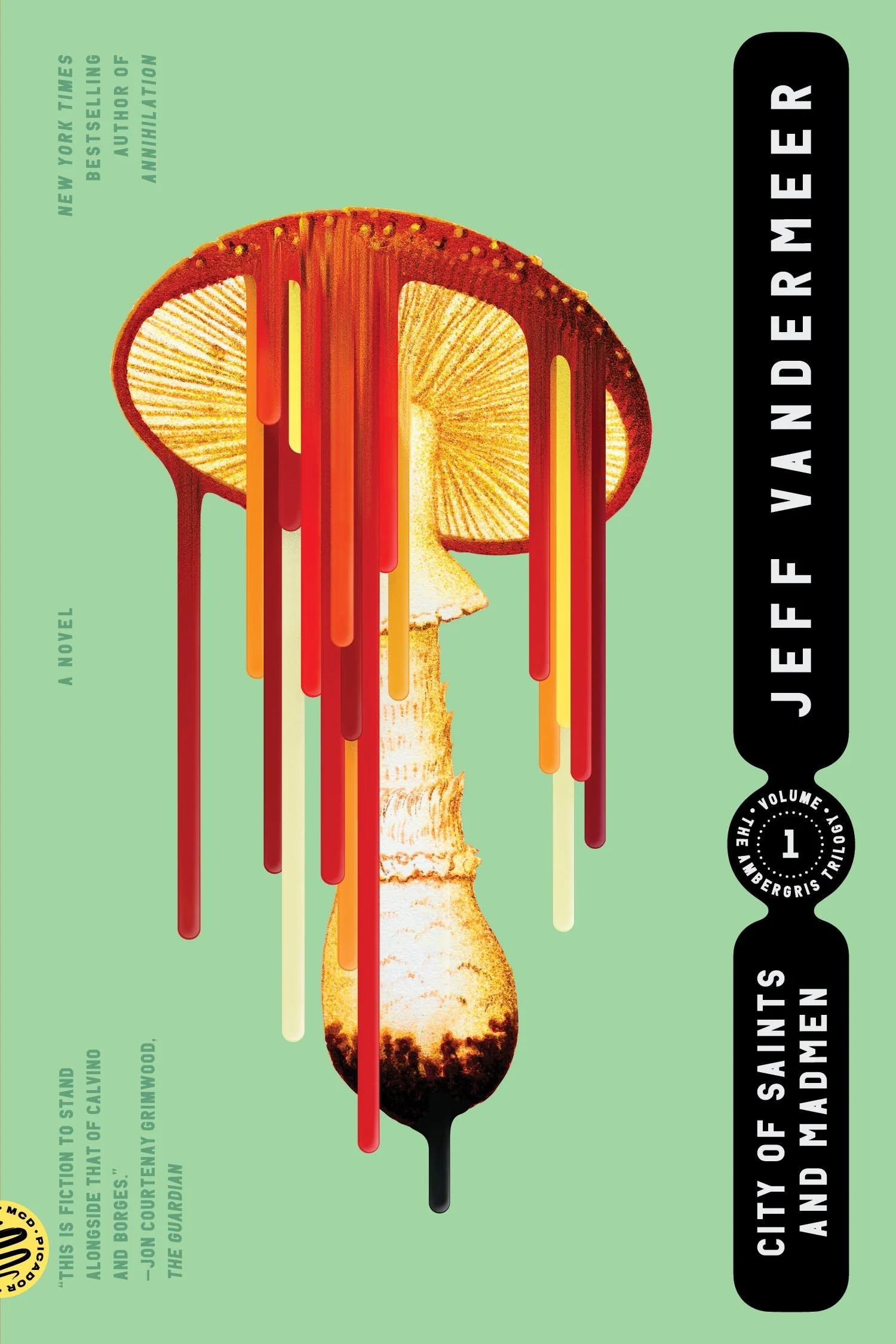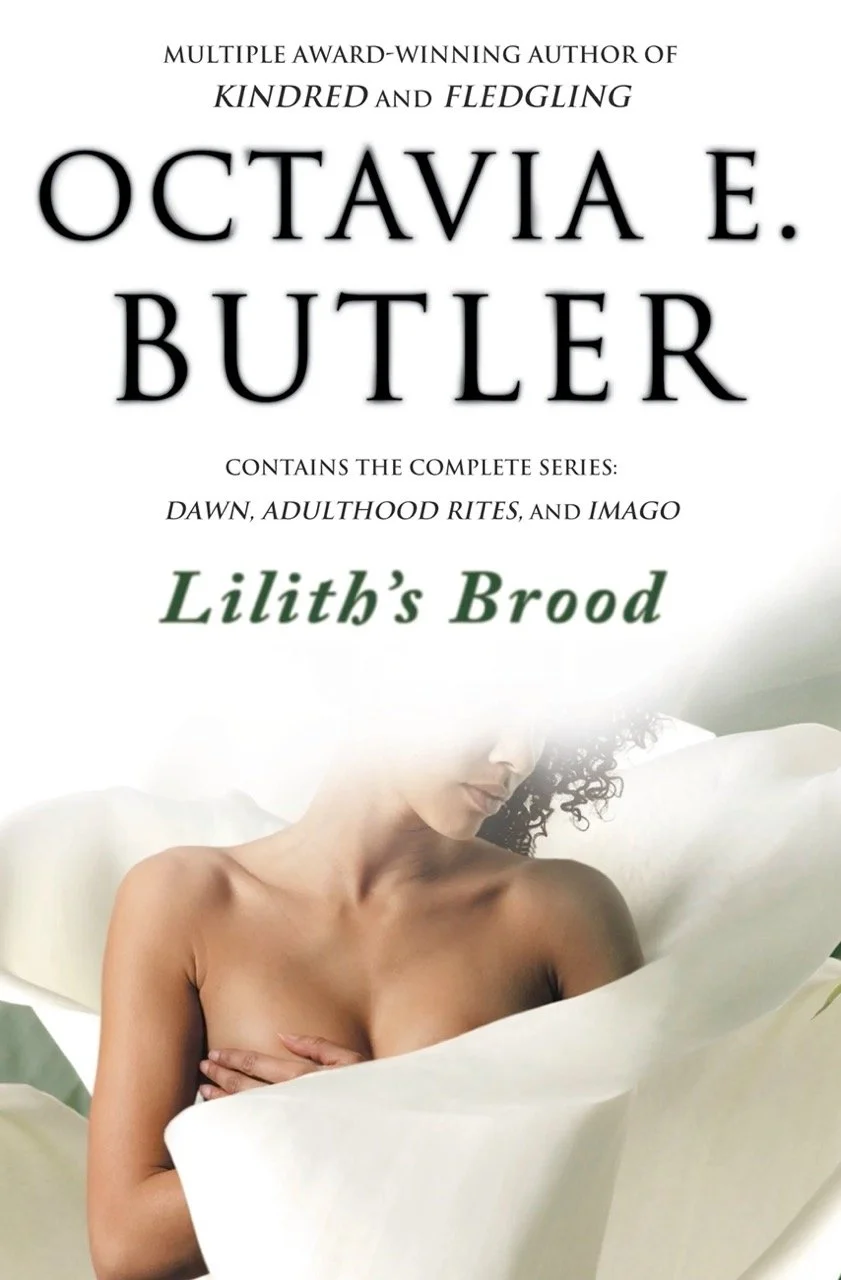2023 Reading List
1. Chain of Thorns Cassandra Clare
4/5 Reading Sounds: Michael & Peter by, Frank Sinatra
Two years ago around this time, I was reading the newly released Chain of Iron, and it was the first thing I’d been able to read since finishing 30 books in 2020. Every time Clare releases a new book it feels like I get to spend the next week hanging out with friends nonstop. So many characters to get caught up on, so much going on I need to make sure I haven’t forgotten. Chain of Thorns is the final book in this newest trilogy from Clare - The Last Hours. Overall I really enjoyed this series, and Chain of Thorns was definitely my favorite of this trilogy. Where sometimes the first two books had trouble hooking my attention and keeping it for most of the book, this one definitely did not have that problem. I am not sure if this is because it being the finale of a trilogy rose the stakes by default or if I had just spent enough time with these characters at this point to finally feel invested. This trilogy feels like a filler, setting up storylines for later and fleshing out some more backstory for beloved fan-favorite characters. Even so, it was another dazzling example of Cassie’s ability to weave a million and one storylines together in order to weave those million with another million for the next trilogy. Hopefully, we’re not waiting too long…
2.. Snuff Chuck Palahniuk
1/5 Reading Sounds: My Dick by, Mickey Avalon
I picked this book off the shelf because Palahniuk’s name was written down the spine in a chunky pink type that I couldn’t ignore. I thought if anything could get me interested in this author enough to finally pick up the copy of Fight Club that has been sitting next to my bed for almost a year, it would obviously be pink and shiny like Snuff. That was not a great idea. This book had a funny premise, and I got excited at the idea of something so bizarre being stretched to fill a 200 page novel. It kinda reminded me of discovering the synopsis of My Year of Rest and Relaxation (“Really? For a whole book??”). This book follows the harrowing journey of 3 random(?) guys waiting in line for their turn in a record-breaking gangbang with legendary pornstar Cassie Wright, and the manager handling the line order. However, about 50 pages in I realized that there was nothing propelling me to read more except for the ever-alluring promise of more dick jokes. Don’t get me wrong, they were (sometimes) good dick jokes. I just had a hard (ha) time getting invested in the story once it dawned on me that the queue was the whole story. By the end I found myself with more questions than answers, and not in a good way. Did Hitler actually invent Aryan blow up sex dolls to keep Nazis from getting STDs in France? Are there really drawers filled with disembodied classically sculpted dicks hidden away in the Vatican? Do potassium cyanide and Viagra really look that similar? Resolution: Who cares?
3.. The Neverending Story Michael Ende
2/5 Reading Sounds: Sapokanikan by, Joanna Newsom
I often do this thing where I read books based on association rather than personal interest. As often as I am reminded that this method does not turn out the best reading material (Snuff, this book, etc.) I still continue to try to find books this way. 100% honest: I decided to order this because somehow I made a connection to it from The Princess Bride - another book I have not actually read yet. I finally started reading it last year in August, and it took me almost seven months to finish. A big part of my problem was that I had already seen the movie, and I feel that this led me to not care too much or feel very invested at the beginning of the movie. However, the original movie adaptation only covers the first half of the book’s plotline, and even after passing the point in the book where the movie left off, I did not find myself caring too much about anything that was happening. There were certain things about this book that I wanted to like, but I think the aspects I didn’t enjoy overweighed them. The pacing of the chapters began to feel very episodic and I was left with very little incentive to move forward through the plot. There were several points in the story that got me excited again, mostly toward the end. However, after finishing the story and being pleasantly surprised at how well the ending paid off the rest of the book, I still feel that I’d rather watch a YouTube essay than go through the pain of reading this book again. Side note: Do you think The Princess Bride is trash too?
4.. The Cruel Prince Holly Black
4/5 Reading Sounds: My Tears Are Becoming A Sea by, M83
When it comes to fantasy, Faeries are usually not my go-to. I remember enjoying Holly Black’s Spiderwick Chronicles, and I enjoy the Faerie elements that Cassandra Clare brings into her books. I know I can count on Holly Black to give me a story good enough that I can overlook the qualms I have about reading a Faerie book, and she didn’t let me down. This is the first of three books that follow our protagonist Jude as she navigates adulthood in Faerie with her twin sister Taryn and their older sister Vivienne after they are adopted by their mother’s murderer and Vivienne’s biological father, Madoc the Grand General of the High King of Elfhame. Holly Black writes about faeries as if she lives with them, the rules never feeling like they need to be explained when you can learn so much by just following along. The political scandals pile up to a climax I was actually surprised by, and there was a plethora of romance that left me scratching my head. There are two main love interests introduced, and I feel slightly dumbfounded when confronted with talking about them. Instalove is a YA Fantasy trope that used to bother me, but this was something completely different. It was like Holly Black was picking people out of the crowd at random for Jude to become entangled with, regardless of chemistry or story. It might have been better without that stuff, honestly, or maybe it wasn’t actually supposed to be “romance.” I really don’t know. I struggled to understand it, and I struggled to understand why Jude is fighting and sometimes what she’s even fighting for. The inhuman-ness of the Fae folk is hard to look past (I don’t honestly think Holly Black is expecting you to look past it anyway), and at a certain point, it almost feels like the Fae are, as a whole, one character, in opposition to Jude. Why should she get involved with petty Faerie drama that will continue after her death to the end of time if unchecked? I don’t know, I’m hoping book two gives me an answer.
Also, I’ve been looking at illustrations from @PhantomRin on Instagram to help keep all of the characters straight in my head.
5.. The Wicked King Holly Black
3/5 Reading Sounds: I Think I’m Gonna Like It Here by, Aileen Quinn
I jumped right into this one after finishing the first book in this trilogy. The plot twist at the end of book one definitely had me excited to see where things were heading, even though I was having trouble getting fully into it. This second book in the series also kept me engaged and entertained, but it fell into a lot of the same tropes and patterns that were throwing me off in book one. Our protagonist Jude is still fighting for her place in the Fae world, and she’s still deciding who she can trust. I think my Number One Issue with this series so far is that this underlying issue/question of “Who can I trust?” is never fully addressed. I mean, the answer is obviously “Nobody, you live with Faeries” but I just don’t feel like that gets said enough. As you’d expect, though, Jude decides to trust all the people who were very obviously out to get her from the beginning, and she is surprised when they are still out to get her at the end. I don’t feel bad for her at this point. Getting to meet Queen Orlagh the Ruler of the Undersea was exciting, and I did enjoy getting to see the Faerie realm that exists underwater. The way that magic works to allow land Faeries to breathe, eat, and live underwater was fascinating, and once Jude finally escaped the Undersea, the rest of the book was also fast-paced and exciting. The ending was surprising, but even though the cliffhanger was there, the urge evoked to read the next book which was present in the first book was not as strong here. The betrayals stop feeling so betrayal-y when literally everyone is doing it. Reading this trilogy is feeling like reading The Martian - which I never finished - in the way that the reader’s enjoyment must ultimately come from a fascination with the protagonist’s tediously minute description of them navigating their environment (Martian : logging every minute detail of his journey home, down to his shits, probably :: Wicked King : mining every single line of dialogue in the book for political strategy). When everyone is the enemy, this begins to feel simultaneously absolutely essential and totally unnecessary. I don’t think I enjoyed this book as much as I enjoyed The Cruel Prince, but I am hopeful that the next book (The Queen of Nothing) will provide an ending that shows me how this buildup has been worthwhile.
6.. Paradais Fernanda Melchor
3/5 Reading Sounds: Song for the Divine Mother of the Universe by, Ben Lee
With only 111 pages, this small book definitely packed a punch. From page one, Fernanda Melchor stifles readers with the hot summer sun and oppressive wet heat. This is reinforced with the endless pages of uninterrupted columns of text. Stream of consciousness sentences that span over half a page, no quotation marks, and few line breaks made this a truly daunting task of a book even though its page count barely stretches past triple digits. Following Franco who lives with his grandparents in a luxury housing complex and Polo who works there as a gardener, Paradais finds these two plotting to murder Franco’s neighbor. Melchor explores classicism and racism, making the reader question who to point fingers at even as they are faced with a full synopsis. Toxic masculinity, misogyny, and homophobia are floating around aplenty, making for a cauldron of oppressive atmosphere that only adds to the hanging tension in the summer heat. Franco and Polo feel real in a scary way - a way that makes the reader want to give everyone they pass on the way to work a second look, and then a third and fourth to be safe. This felt like a breathless rush to the finish line, and then a quick moment to feel weird about what I was in such a hurry for. I’m definitely interested in finding out more about this author and her previous works.
7.. Queen of Nothing Holly Black
3/5 Reading Sounds: Dark Sienna by, Brian Eno & Ryan Eno
The Queen of Nothing is the final book in The Folk of the Air trilogy, and probably the best of all three. Where the other two entries in this series could get too caught up in the details of politics and the semantics of conversation, this finale was more focused on closing out storylines than setting anything else up. There was an urgency to this story that was definitely missing in the previous book, and it all but made up for the problems I had been going through reading the series so far. Where characters were behaving repetitively or stubbornly, they were finally forced to make decisions and take actions that propelled them towards the climax. Holly Black took some big risks hoping that the titles of her books would not give away the plot too much, as well as the cover art. To a certain extent, I was let down that certain plot points were given away before I even got to the first page, but I think she was able to keep the suspense heightened enough to make up for it. The conclusion to Jude’s story arc was satisfying, even if the romance still left me a bit confused. It feels as though any loose ends were mostly excused rather than ignored, but these could be addressed in the spin-off series The Stolen Heir.
8. The Raven Boys Maggie Stiefvater
4/5 Reading Sounds: Oceans Niagara by, M83
The Raven Boys by, Maggie Stiefvater was so unexpectedly amazing. There are so many books that I remember being popular on BookTube when I was in high school. I’ve recently tried to get into BookTok, and it’s funny how many books are still the same. This wasn’t a social media recommendation though; I picked this up because after my sister recommended that I read The Cruel Prince, the cover reminded me of this book series. I didn’t know anything about this going in, except that it was fantasy, and I’m pretty sure a better summary might have dissuaded me a bit. The premise doesn’t immediately grab me from the back of the book, but the characters hooked me from page one. I spent a not unnoticeable amount of time adjusting to Stiefvater’s writing (especially dialogue-heavy scenes had me reading lines over and over to figure out who was saying what pretty much through the whole thing) but the atmosphere she creates and the characters who inhabit it are undeniably golden. This first installment of The Raven Cycle quartet follows Blue Sargent, a psychic’s daughter living in Henrietta, Virginia, as she is introduced to the Raven Boys, four guys who go to the snobby private school there. The boys’ leader Gansey is on a quest to win a magical wish by awakening an undead(?) king buried along a magical ley line that runs through the town, and he wants to use Blue’s innate ability to boost psychic energies to help. I was not expecting to get so attached to them as characters, especially based on the way they are described. In one scene Stiefvater describes Adam: “He looked at home here, his hair the same colorless brown as the tips of old grass.” Lol what. At one point she says that Ronan’s five o’clock shadow made him look like someone you’d grab your kid’s hand when passing on the street. And Noah only ever shows up to pet Blue’s hair every once in a while, and then he scurries back into the shadows. I loved each of them dearly by about 200 pages in. I wrote down a ton of notes while reading this book, but most of them are just questions about what happens next. The characters have me invested, and I’m excited to see what’s in store, especially as I feel like we get deeper into why each of them want to awake the hidden king and receive their wish. This book had me crying a few times, and a few times it had me genuinely surprised. I didn’t realize what flavor of fantasy this would be, but it almost reminds me of Unbecoming of Mara Dyer meets Special Topics in Calamity Physics. The private school setting is a welcome place for Stiefvater to bring up wealth inequality and toxic masculinity. The characters feel like they have a lot of room to grow and to devolve; and I am very excited to see where it goes.
9. Little Birds Anaïs Nin
1/5 Reading Sounds: Now It’s Over. Now I’m Awake. by, LUCHS
I had a lot of problems with this book. Anaïs Nin is kind of groundbreaking in a lot of ways, but the more I read from her the more aware I become of how limited my options are. There are very few women who would have had the resources, education, and freedom to write about the topics that Anaïs is exploring in this book, and these privileges are extremely important to note as readers delve into these stories, which often exhibit motifs of racism, misogyny, colorism, p*dophilia. There are plenty of points where I feel that Nin is breaching a topic that absolutely warrants discussion, but her inhabitation of certain perspectives makes me wary as a reader. Is she making fun of the white male gaze, subverting it to tell her twisted narratives? Or are her own views not so different? Nin makes it clear that her writings embody her sexual liberation, and in this space she has created for herself and her readers, she is able to explore these interests in a way that reclaims the power that (white) men have long held dangled above their everyone else’s heads. Her privilege allows her to create fantasies, but only through a lens full of racist stereotypes, heteronormative gender roles, and trauma. Honestly, a lot of these stories - especially the ones involving minors - read more like a cry for help than anything else. It is reminiscent of gay men who swear that being groomed as a kid was a formative and beautiful experience (think Call Me By Your Name), describing a literal crime being committed against their younger, more vulnerable selves, without ever being able to see it. Nin brings up the artist’s gaze, fixating on the idea that a woman cannot blossom sexually until under the scrutiny of a subjective third party. She laments how hard it can be for a submissive woman to find a man who takes what he wants, even hinting that some of her protagonists would secretly wish to be raped. Blissfully unaware of the privilege she is flaunting even as a rift in equality is the thesis of nearly every short story. She wants to show how men take what they want from women, and to do this she will use blackface, cultural appropriation, and more. This is a glimpse into the sexuality of a woman who was lucky enough to be able to escape the forces opposing her, and for that reason, it is an interesting and rare piece of literature. However, the more I read of Anaïs Nin, the more I am confronted with the fact that this default spotlight on her as a notable leader of the feminist, woman-authored erotica genre doesn’t actually make her deserving or admirable; it just makes her notable.
10. Secrets of Blackthorn Hall Cassandra Clare
5/5 Reading Sounds: Rivers and Roads by, The Head And The Heart
I was actually planning to try and get through a book of short stories that I have been putting off for way too long, but the line for coffee was so long this morning that I pulled out my phone and started reading Secrets of Blackthorn Hall while I waited. This is the fourth bind-up of Shadowhunter-related short stories from Cassandra Clare. In the past, she would announce a bind-up over a year before its physical publication, and then she would drop them one story at a time on the Kindle store until finally reaching the day you could order the whole thing. This time, she chose to instead post each story - in the form of letters or text conversations between our modern-day Shadowhunter cast - for free on a Tumblr blog beginning in July 2021 and ending in October 2022; there is still no physical publication of these short stories announced, which is a large part of the reason that I finally caved and read it online. This was mistake number one. Somehow, I convinced myself that reading Cassandra Clare on my phone in public was safer than reading a physical copy in public. Be warned, it’s not. These stories largely followed Julian Blackthorn and Emma Carstairs after the events of The Dark Artifices. When Julian inherits Blackthorn Hall (FKA Lightwood Manor) from his great aunt, he is forced to go fix up the dilapidated Chiswick property before it is handed over to the Clave instead. He and Emma must repair the damage from over a hundred years of neglect, but not before they lift the curse holding a mysterious, unidentified spirit hostage on the property. As these stories take place after the events from TDA, they are the most recent updates regarding the Shadowhunter characters, which means this is currently the largest cast of characters. There are some standout letters here - anything in Tessa’s voice is sob-worthy. The “Tessa to Maryse” letter specifically was really beautiful, and so was the “Tessa to Sophie” letter. Finishing Chain of Thorns recently I remember feeling that Will Herondale had an established presence while Tessa seemed to fade into the background a bit. Not the case here, though, as Tessa shows up a lot, especially with her close ties to Jem, Kit, and Mina. The main cast for The Wicked Powers is also being set up already; we know Tavvy will be there, Kit, Mina, Max, Rafael, Ty (and his friend Anush?), and Dru (and her friend Thais??). It is exciting to see them beginning to grow up and show a bit more of the personalities that they have been too young to express thus far. These stories also felt like further confirmation that Jem and Tessa will play extremely important roles in TWP. Overall, this was an excellent bridge between TDA and TWP, and perhaps - most surprisingly - it really did a wonderful job of setting up even more tension and buildup for CoT.
11. What Is Not Yours Is Not Yours Helen Oyeyemi
1/5 Reading Sounds: I Miss You by, Beyoncé
When I first read Mr. Fox by Helen Oyeyemi, I had never heard of the fairy tale of Bluebeard before and did a bit of internet research to prepare. I found a video from YouTuber Jen Campbell who mentions one of their favorite fairy tale tropes is when a story feels like it’s about to end, and then it just keeps going and going and going. This is what Oyeyemi’s What Is Not Yours Is Not Yours feels like: she is spinning a tale of a world that doesn’t know it’s a story yet, and for that reason alone, perhaps, the story just keeps going. Helen Oyeyemi’s writing feels lyrical, reminiscent of fairy tales and ghost stories - plot lines that sink into your brain through word of mouth rather than any formalized publishing or consumption. This lends itself to her signature fairy tale retellings. Each time I read one of her books it feels as though she is opening up the story from the backside and pointing out all the ways I didn’t notice it caving in till just now. She does this while also maintaining an air of newness, excitement, and humor that can be hard to balance. This was the first book of short stories that I had ever read from Oyeyemi (although Mr. Fox was definitely book-of-short-stories-esque), and I am not 100% sure how to feel. Each of the stories is interconnected through a web of characters which becomes more apparent the further you progress through the book. At the beginning of the first few stories in particular, I felt myself having to put in a concerted effort, backtracking and figuring out what was happening, and what information was relevant still (plot twist: everything was relevant still lmao). Oyeyemi’s stories contain stories which contain stories; and for this set of short stories in particular Oyeyemi has decided to laser-focus her creative might on: keys. “The key to a house, the key to a heart, the key to a secret.” There is still some fairy tale inspiration happening, which I wasn’t sure enough to expect, but I was happy to see. One chapter had me scrawling, “Pinocchio??” In my notes, and another one, “Red Riding Hood!!!” These feel almost like Easter eggs, though, in a book that is tackling as much as this one is. I will admit that a few stories in I began to realize just how many threads of the story there were that I hadn’t though to keep track of, and there were a few times where I felt myself losing control. I did not know what was happening in the story anymore, but I continued holding the reins in case I found my way back before the end of the chapter (which I usually did!). Even in these instances, though, I can’t help but continue to be swept along by the meandering tales and humor. Oyeyemi specializes in pulling the stark and uncomfortable out from beneath our perfectly relaxed behinds, a move which should have the angry hoards after her but instead has them chuckling along too. How can you argue against someone who’s using stories we all know by heart to make her points so correctly? You can’t!
12. Fight Club Chuck Palahniuk
4/5 Reading Sounds: Powerful Man by, Hop Along
When I went to sleep away camp, the boys in my cabin would wait until our counselors left for their staff meetings every night, and then they’d hold a fight club in our cabin bathroom. They would draw names from a hat and fight each other till someone broke something or surrendered - whichever came first. We only ever had two broken bones, but somehow these 15-year-old ass clowns forgot the first rule of Fight Club and ended up getting in a shit-ton of trouble after bragging and sharing videos with some staff members (they had phone recordings of the fights saved; Tyler Durham would have them castrated for that, probably). Reading Snuff, I really didn’t know what to expect. The assumptions I had about this story’s fanbase gave me the impression that they can’t possibly understand what this book is poking fun at or there is no way they would ever be fans. Fight Club felt gay, it felt angsty and anti-capitalist, atheist (or even merely anti-Christain), the gamut of ideologies that would drive most run-of-the-mill Fight Club fanatics to commit hate crimes (Remember in 2020 when all those Rage Against the Machine fans realized that they were following a political band and got pissed?? Yeah, it’s those vibes. https://www.nme.com/news/music/tom-morello-twitter-respond-to-people-only-just-realising-rage-against-the-machine-are-political-2685353). I don’t know, I think overall the story was super compelling, and there was so much to think about. I just don’t know how successful the book can be if literally 99% of the audience missed the point. In the Afterword, Palahniuk says that after writing Fight Club he has had some pretty bizarre fan interactions. A 5-star London restaurant waiter once bragged to him, “‘Margaret Thatcher has eaten my cum.’ He held up one hand, his fingers spread, and said: ‘At least five times…’” This kind of media obsession is reminiscent of The Dark Knight movie premiere shooting or people who harass and abuse pornstars online for clout. What kind of author brags that their writings inspired five instances of sexual assault? Can you imagine if every Blu-ray disc of The Dark Knight had a Supers card at the end detailing the Aurora, CO, shooting? I guess this kind of falls into Palahniuk’s wheelhouse (look at Snuff). There are so many references to Valley of the Dolls and other stories of women finding a way to survive in a society that does not give a fuck about them. Palahniuk asks where these stories are for men, and I genuinely cannot tell if he’s being serious. Can the same person who writes a book as complex as this one seriously not know the answer to that question? Am I just overly disdainful and suspicious of straight people? Probably. I don’t think it matters, though, and I’m getting pissed. 4 out of 5 stars, definitely. I was entertained as shit, but I’m happier than I can express in words that I did not pay full price for it.
13. The Dream Thieves Maggie Stiefvater
4/5 Reading Sounds: Make Your Own Kind Of Music by, Cass Elliot
Where the previous book in Stiefvater’s Raven Cycle quartet had me dying for the next book by the final chapter, somehow this book did not do the same. Up until the end, I thought that The Dream Thieves was actually outshining The Raven Boys in almost every way. Bringing Ronan into the spotlight was so much fun, and I really enjoyed getting to explore the new magic thot was hinted at, at the very end of book one. Stiefvater continues to explore class inequality and feminism in ways that feel sometimes a bit too dated. I didn’t realize that there would be gay characters in this series, but I am so excited that there are. I enjoyed getting to read about Ronana nd Kavinsky together, and I think that there is so much of the fantastic magic system Stiefvater has created left to explore. What does it mean that there is more than one family of dream thieves in Henrietta? Who else is coming to look for them? Why is Blue tangled up in this in the first place? How did Gansey pull together this group of friends who are each destined for such crazy individual greatness?
14. Two Boys Kissing David Levithan
4/5 Reading Sounds: Yoshimi Battles the Pink Robots, Pt. 1 by, The Flaming Lips
I don’t think I’ve ever written about a book by this author on my website before, but I am pretty familiar with David Levithan from high school. This is a book of his that I always wanted to read (but was too scared to buy), so I ended up feeling weirdly close to like 14-year-old me while reading this. I really liked it, but 14-year-old me didn’t. Levithan’s writing tends toward being very heavy - almost too heavy - but I think when I first read a lot of his works, the topics and characters were uncomfortably similar to some things in my personal life, causing me to feel more triggered than seen. Two Boys Kissing told the story of Craig and Harry, ex-boyfriends who have agreed to put the past behind them and, together, go for the Guinness world record for the longest kiss. Readers also follow their classmate Tariq, a very new couple Avery and Ryan from a few towns over, and Cooper who is a hot mess. It is important to note that the book is written in second person narrative from the perspective of a chorus of the LGBTQIA+ generation lost to HIV/AIDS. Two Boys Kissing was reminiscent of so many other things, a characteristic that was driven home by Levithan’s insistence that reference and acknowledgment are a form of respect, that art is something which can exist in a mind long after it stops existing. Levithan dares readers to question this validity, using references as a sort of structural foundation to cement the installation of this book as a future queer classic. He gives a book the name Two Boys Kissing, inviting readers to gawk, and then writes 200 chastising them. When one character realizes that even loving whoever he wants to love won’t save him if he can’t love himself, he reflects, “Even though the liquid is easier to see, you have to learn to appreciate the air.” All the pieces of media that Levithan learns from, references, draws inspiration from, they have already existed long before now, and they all took up space. Levithan is simply pointing out the air around those stories, an intense conversation between a new generation and an invisible one. Two Boys Kissing was poignant and surprisingly optimistic. It made me cry a lot, but I don’t want to talk about it. I still have the book that came out after Every Day, so I might read that finally. I remember it being okay, but Levithan’s writing can get kind of hard to read after a while. It just gets super heavy and hits too close to home. I also watched the trailer for the movie adaptation that was made from Every Day, but was that movie based on just the original book or both books? I’m not gonna lie, though, if P!nk wasn’t the music for the trailer I wouldn’t even be considering watching, but… I don’t know. I still probably won’t. Onwards and upwards, homos.
15. House of Incest Anaïs Nin
2/5 Reading Sounds: Bells of Atlantis by, Bebe and Louis Barron
The introduction by Allison Pease and the foreword by Gunther Stuhlmann were the highlights of this book. “House of incest” is a metaphor Nïn uses to describe a woman who only loves things about her partner which remind her of herself. The prose was very arresting, and Nïn brings readers along with her on quite a lot of poignant climaxes. But "enjoyable”?
16. Half Magic Edward Eager
3/5 Reading Sounds: Manners by, Icona Pop
In first grade, my school librarian recommended me Half Magic written by Edward Eager, and for a while afterward I remember going to library every Monday and getting the next book in the series and reading it on the car ride to piano lessons after school that day. This book makes me remember other stories that librarian introduced me to, like Peter and the Starcatchers. Many books like that, which I borrowed from the library, are books that I haven’t read since the very first time. I think this is part of what gives it such a nostalgic feeling to me; this feeling is what pushed me to go out and find this to give it another go. I reference this series so frequently when telling people about how I got into reading, it felt a little bizarre coming back to it after so long. I wasn’t sure if it would still hold up, I didn’t know if the bits and pieces I remembered were accurate, or if they were merely mismatched scraps from other books I read around the same time. Either way, going into this I was very excited, and it didn’t disappoint. This whimsical story follows four siblings at the beginning of summer break. Jane, Mark, Katherine, and Martha live with their single mother who cannot afford to take them on a fancy summer vacation, so they will have to find their own fun this summer in books from the library and whatever shenanigans they can find in the neighborhood. With such underwhelming adventures to be had, they are understandably dismayed, until they find a weird-looking coin on the sidewalk in front of their house. It is not long before they realize that this is a magical wish-granting coin that is going to make their summer break one they will never forget. The only catch? The coin only deals in half-wishes. This story is so fun, and the lyrical, humorous writing reminds me a lot of The Chronicles of Narnia, but maybe a bit less “literary” feeling. The books these children keep referencing root this book in a modern-day setting that feels much more grounded than the World War I backdrop of The Lion, the Witch, and the Wardrobe. This book is about children who love books, and as a kid who loved books, this was perfect for me. I am glad that I went back to re-explore this story, and I was surprised at how much of it I actually remembered. There were a few scenes I was highly anticipating that I realized later in the book were probably from subsequent books in the series. I have not decided whether I will continue re-reading this series, but it’s definitely in my back pocket as something to get me out of a reading slump.
17. Parable of the Sower Octavia E. Butler
4/5 Reading Sounds: Writer’s Song by, Bibi Bourelley
Sci-fi is not always my favorite genre, and when I do read something from that side of the bookstore, the most repetitive issue I find is the inability for many books to build a technologically other world without boring me to death explaining it. However, in Parable of the Sower, Butler writes about a world that has regressed in technology, and this could be why the story seems to flow so naturally. Parable of the Sower was published in 1993 and tells the story of Lauren Olamina who lives outside of LA while the United States of America as we know it completely falls apart in the year 2024. Global climate change has pushed the world into a social and economic nightmare, and in the United States, most are living in extreme poverty and/or are unhoused. Lauren lives with her father (the preacher at their Baptist church), step-mother, and four brothers in a home bought by her dad before the world went to shit. There house is in a small, walled, suburban cul-de-sac, along with the homes belonging to some of the families who were their neighbors back before they were forced to build the wall and assign armed guards. Now this group of families lives isolated within this tiny community with multiple (incestuous?) generations of unemployed family members crammed into each of their dilapidated houses even as they are falling apart around them. They do not have the resources to do much outside of the basic necessities for survival: gathering food and resources, going to church, learning to shoot. The drug-addicted, unhoused, desperate many who were not so lucky as her are dangerous, attacking those who wander outside looking too clean, hydrated, or fed in the hopes of making off with a bit of money, water, or food. I saw this book compared to Handmaid’s Tale on TikTok, and that’s why I decided to pick it up. If we’re gonna go there, I think I’d throw in Dune and Mad Max as well. In such a scary setting, it felt like every page was the end of the world, and it kind of was. Life hangs by a thread from chapter to chapter, and the stress mounts to a point that it becomes hard to make out where this whole thing is even going. But Butler’s storytelling is so masterful, when Lauren ends a chapter with the most casually devastating off-hand comment you’ve ever read in your life since the last chapter, you can rest assured that her self-authored parable at the beginning of the next chapter will dependably pull everything back into perspective for you. These parables or poems are excerpts from her notebook, and they are the framework for how she views the world and others around her. Observing life from her tiny corner of suburban hell, she is able to divine what she halfheartedly denies is a new religion focused on education, diversity, and the acceptance of Change. Literally, the first chapter’s parable is the thesis for the entire book, and that’s kind of masterclass shit to me: “All that you touch, You Change. All that you Change, Changes you. The only lasting truth, Is Change. God, Is Change.” Go. The fuck. Off. As Lauren is forced to leave her home, she becomes more and more obsessed with the idea of taking these handwritten parables she has created and using them to start a community of people who are interested in learning from her about this religion, which she has begun calling “Earthseed.” For a book so rooted in and focused on Christianity, it was a suprisingly easy story to digest, and it had a surprisingly hopeful tone despite the foundation of incomprehensible tragedy that the plot builds itself upon. When I read My Year of Rest and Relaxation, I kept feeling guilty, like it was too good and someone was about to come snatch it out of my hands and scold me for enjoying a book so much, possibly scold Ottessa Moshfegh for having the audacity to tap into such a raw story. This book felt similar. How brave one must be to look so directly into the future and write so exactly what they see. It’s like telling the teacher they’re wrong when you know they’re wrong. It’s hopeful, confident, audacious, breathless, nervous, bold… Not enough words, truly. I can’t wait to read book 2.
18. Parable of the Talents Octavia E. Butler
5/5 Reading Sounds: Orbit by, Nao
Octavia Butler kind of has me speechless at the end of this duology. I’m here to talk about it though, so I guess I better get over that. When I bought this book from the bookstore, I had kinda just spotted it on the shelf and recognized the author’s name, and without knowing it was part of a series, I bought this second book instead of the first. When I got home, the first chapter or two of this book were my introduction to the entire story of this duology. I quickly realized I was reading the second book instead of the first and had to google whether they can be read out of order. Nobody on TikTok could agree, but I ended up going back to the bookstore to grab Parable of the Sower and start the story from the beginning. However, the first few chapters of this second book definitely gave away some plot points I wish had been a secret while reading the first book. I think this might be part of the reason that Talents hit harder for me than Sower. In some ways, the knowledge that Larkin/Asha exists when I began reading Sower made it not so scary. In other ways, it didn’t really matter. I loved how Butler included even more voices than in the first novel. In addition to our standard perspective from Lauren’s journal, we got to hear from Larkin, Marcus, and Bankole. There were times in Sower that I caught myself wondering, “Is this even really sci-fi?” I didn’t struggle with that distinction in this book. It’s less like Butler is breaking convention, and it’s more like she is roleplaying a writer with no sense of convention. The groundedness of the story lends itself to its own readability (in my opinion), but sometimes the Destiny outlined by Lauren is the only thing for chapters and chapters and chapters to root this series in its sci-fi genre. It’s so fucking bizarre, like I’m reading a story about medieval characters fighting to get to the space age before the book runs out of pages. The urgency felt throughout Sower was ever-present in Talents as well. Sometimes I worried that the ending would not be able to pay off so much, and I still don’t really know how I feel about it. That being said, I thought the way it built off the first book was phenomenal, and weirdly, I do think it could stand on its own (although I would recommend reading the first book first if possible). I read online that the third book Parable of the Trickster was never completed before her death. It was supposedly going to follow the Earthseed followers at the end of Talents who leave Earth aboard the Christopher Columbus to begin building a new Earth colony on some far-off planet. Butler died in 2006 before completing book three. This abrupt ending to such a hopeful story does feel kind of ominous. This was one of the best series I have read in a long time, and I think it will be a long time before I find the nerve to pick it up again.
19. A Certain Hunger Chelsea G. Summers
3/5 Reading Sounds: Rich Bitch Juice - Laura Les Remix by, Alice Longyu Gao
I just found out after finishing this book that this is the debut novel from author Chelsea G. Summers, and what a stunner it is! The blurb that convinced me to put this book on my TBR list was from TikTok. Something along the lines of, “By day she’s a famous food critic, by night she’s a cannibal.” The premise alone is so intriguing, I knew I would end up reading it sooner or later. In addition to being thoroughly entertaining, this book had much more nuance than I thought it would. What could have simply been a slasher story punctuated with body horror and food porn, this was surprisingly heart-felt. Our protagonist Dorothy Daniels is a self-described psychopath writing a confession from prison. Her crimes range from arson to assault to murder, but she makes sure to remind you early on that in most places, cannibalism is not a chargeable offense. The way she describes her passion for food writing is beautiful, and there is humor and irony ever-present in her argument that the natural progression from her adventurous palate is obviously cannibalism. Unreliable first-person narration, a chronologically shifting timeline, as well as the protagonist herself create strong ties between this book and stories like Lolita or American Psycho. In the acknowledgments, Summers thanks Brett Easton Ellis for being such a huge inspiration during the writing of this novel, cementing these similarities. Much of our protagonist Dorothy’s time in this book is spent remembering her life and contemplating its meaning. As a self-proclaimed psychopath, she feels that she represents something bigger than herself, and when the author calls out such specific references which helped to shape this story, it becomes extremely apparent why. In a genre as broad as psychological thrillers, there is a notable lack of female psychopaths. Dorothy Daniels absolutely stands on-level (at least) with the great male psychopaths of literature, and I think this sort of story is groundbreaking at the very least, simply for speaking to this sentiment so directly. The friendship arch between Dorothy and Emma was also refreshing in a book that tends to cast aside most of its characters after a few dozen pages. Sometimes the perspective of Dorothy could get very tedious to read about (she is very detail-oriented, likes to talk a lot, etc). I think in places the book could begin to drag, but the short chapters and the general plot line was usually interesting enough to keep any dull moment from extending too long. I would definitely read more from this author in the future, so I’ll be on the lookout for her next book.
20. The Secret History Donna Tartt
5/5 Reading Sounds: Kill V. Maim by, Grimes
Knowing the reputation this book has amassed, it was difficult going into it without having any crazy built-up expectations. This book kind of blew me away regardless, though. What Donna Tartt has accomplished in this book is so impressive. The story alone is independently breathtaking, but then you open to page 1 and see that - in a nod to Tartt’s tragic Greek inspirations - the entire plot is outlined in the first paragraph of the Prologue, and you start to realize what a ride you’re in for. The Secret History follows Richard as he transfers from his boring school in northern California to Bennington in Vermont. Once there, he endeavors to join the elite, highly selective group of Classics students studying Greek under their eccentric teacher Julian. Once he is accepted into the group, he realizes he may have gotten more than he bargained for. I watched and read several interviews trying to figure out what to write about this book, and I came up quite blank. They don’t do the book justice, and I think the best way to give this book justice is to go into it blind and let it break your mind. There are so many great things going for it. Richard serves as a superbly unreliable narrator, leaving me questioning if I ever even knew the characters and events he described to me. It genuinely gets quite creepy, and Tartt makes sure that nothing ever feels unrooted from the baseline of this story: the friends Richard makes at Hampden. Henry, Bunny, Camilla, Charles, and Francis are absolutely unhinged in the greatest way imaginable. This is a book that will change the way you read books, and you won’t look back. I only dinged it a star because of some of the language in the book. Racial/homophobic slurs didn’t really serve much of a purpose other than making characters hatable.
21. Mistborn: The Final Empire Brandon Sanderson
3/5 Reading Sounds: Fathoms Below by, The Little Mermaid
I can’t believe it took me so long to decide to read this book. I first discovered Brandon Sanderson in high school, but the high page counts of his books - as well as the sheer number of entries in the Sanderson book universe have definitely gave me pause. This first book is 659 pages. Although there were definitely parts that felt slow, considering how much world building was happening this is pretty understandable. Although there was a lot of buildup to the meaty action of this book, it did not ever become stale; and, although some plot points were quite trope-y for a first book, this was manageable. In a multi-POV book, Sanderson does a wonderful job of introducing characters that we want to hear from. Vin a fabulous main character. We follow her humble beginnings in the skaa slums of the Final Empire’s capital city Luthadel. While she has survived through mostly thieving and scamming up until now, she is soon rescued from this lifestyle by Kelsier and his ragtag gang of… thieves? Noblemen? Vin must learn how to use her newly discovered Allomantic powers in order to help jumpstart a revolution 1,000 years in the waiting. This book really was firing on all cylinders: characters, magic, plot, politics. The only complaint I can find is that it took like 450 pages for the plot to really pick up. I am hoping this was just first-book syndrome and the second installment The Well of Ascension will be easier to jump into. The themes and ideas being explored in book 1 were well-considered, and I am intrigued to see how Sanderson continues to explore them further. Overall, I really enjoyed this book, and I am looking forward to diving further into this universe (the Cosmere).
22. Mistborn: The Well of Ascension Brandon Sanderson
3/5 Reading Sounds: Stadium Love by, Carly Rae Jepsen
Running over 750 pages, somehow the second book in Brandon Sanderson’s Mistborn trilogy flew by even faster than book one. After hearing so much about the staggering world-building and sprawling, web-like plotlines connecting the books that belong to the Cosmere, it is exciting to say that I think I’m starting to get it. This book built on so many exciting ideas from the first installment in a way that never felt dull or repetitive. I have seen this marketed as a YA trilogy, and thankfully this did not suffer from the YA-genre trope of inserting a slog-fest of a second book just to bridge the gap between beginning and end. The story Sanderson tells is sprawling, and yet never out-of-control. There are many pieces that felt confusing, and it was so satisfying to see these loose ends masterfully woven together to reveal the full picture. These are all very basic compliments to give a fantasy novel, as I read over this, but I cannot emphasize how nice it feels to know an author is gonna take care of you. No need to worry about plot holes or wonky writing, Sanderson is gonna get you where you need to be. I am excited to continue this series further, but as I have done more research on this series, I don’t even know what order to go in. The series I am currently reading is Mistborn: Era 1, and although logic would dictate otherwise, the internet has made me feel consider that the Mistborn: Era 2 trilogy is not the best next stepping stone into this universe. We shall see where it goes from here, but I am excited to finish out this trilogy soon and continue digging into this amazing story.
23. Annihilation Jeff VanderMeer
5/5 Reading Sounds: UH OH! (feat. BENEE) by, Sub Urban
In 2018 I bought this book and gave it to my dad, thinking he’d quickly get sucked into this apparent cosmic horror story about a series of top-secret government-funded expeditions into Area X, a slowly-expanding area of land in the southern US. Annihilation’s protagonist the biologist is one of four applicants assigned to the twelfth expedition by the invisible government agency known as The Southern Reach. Book 1 of The Southern Reach trilogy is the biologist’s assigned journal she updates during this journey. The twelfth expedition includes the biologist, the psychologist, the anthropologist, and the surveyor. Although surprisingly short (under 200 pages), the pacing was pretty moderate till very near the end, definitely lending to the overall skin-crawling nature of this novel. What are they in Area X to do again? The more they try to follow their vague mission orders, the more nothing seems to add up. The twelfth expedition has been sent into Area X to study the strange occurrences, but what are they? The search for wildlife samples and traces of some unidentifiable thing turns into a search for a nameless and unidentifiable... Force? Monster? Something? With so little information to go off of, the twelfth expedition spends tremendous amounts of time unsure exactly what part of this forgotten and strange piece of land so completely reclaimed by nature they are supposed to be gathering information on. Their expedition training and preparation begin to feel less and less relevant as more things stop making sense. The longer the biologist can survive without recognizing this ever-looming presence, without being taken over by it, the more likely she will be able to uncover the truth about Area X and her team members. What are they really looking for? What if the job they were sent on is a cover for something bigger? Does it matter? This book stands independently quite well, the ending will leave readers begging for answers to questions they can’t articulate. Without previously knowing this book to be the first in a trilogy, readers will be very satisfied with an ending that gets its point across by leaving these questions blooming unasked for, like a brightness.
24. Authority Jeff VanderMeer
4/5 Reading Sounds: Welcome To My Island by, Caroline Polacheck
Book two of The Southern Reach Trilogy. I don’t know how to feel. On one hand, the temptation to compare this book with Annihilation feels pretty logical (comparing books one and two is pretty standard). Authority was like 150ish pages longer than Annihilation, and although this is kinda surprising, maybe it shouldn’t be? The momentum built by Annihilation was wildly impressive. It would be hard story to followup with building momentum, but the expectations for book three are now through the roof. If Annihilation is the running start, Authority is the inclined trek up to– lmao psych! Were readers expecting Answers from this book? Hope the fuck not. Authority immediately distinguishes itself from its demented first-born sibling with a brand new protagonist: Control is a recent hire, a self-proclaimed fix-it guy, at the Southern Reach facility close to Area X. This government station is a few miles away from the local military base, providing excellent cover for their actual purpose of monitoring Area X and working with expedition members pre- and (less often) post-expedition. Control is introduced to his weirdly adversarial new colleagues who never quite reach the levels of intimidation that Annihilation’s characters brought to every scene. The stories are not interdependent, but they are differentiated with an effort that borders on confusing, often looping back around far enough to start over. The biologist was introduced to the reader via her job description?? OK, freak? And then she wasn’t even that good at it?? Screaming. She and Control are literally the same person. Annihilation’s beginning, middle, and end never physically stray from Area X, and Authority pushes as far as humanly possible in the opposite direction (emphasis on “humanly”). Rather than a survivor story laced with some unexpected alien hallucinogen, Authority might surprise readers with a paranoid detective novel fringed with something like decay. VanderMeer gives a lot of power to his readers, dropping information that flies past Control unnoticed but allows the reader to put together their own case report. If only to pull the chair out from under Control themself and start interrogating him and the biologist. VanderMeer builds on many ideas brought up in the first book with unsettling clarity. Does humanity even have a chance when faced with something as absolute as Area X? This book does not provide answers, but it does paint all-too-vivid imagery of the human response to a question like this on a national scale. The highly-focused, shaky closeups of plot from book one come into unsettling, equally-shaky focus in Authority. Never mind the fact that VanderMeer forces readers into a POV character with his back turned to the plot of book one for most of book two. This brings readers a glimpse at how the country has been handling the situation, why - against all odds - the biologist from book one was allowed to join the twelfth expedition in the first place, and perhaps the largest question of all: How can you understand something you can’t comprehend? At the end of book one, I was nervous that continuing the story and defining the threat of Area X any further would be a definite ending to the masterfully created suspense of Annihilation. However, in showing us how the chaos and uncertainty of the twelfth expedition are (dully) reflected in nearly every scene of this book, despite taking place completely apart from Area X, we now understand that any unanswered questions from book one are exactly as indecipherable as we first thought. Book two tells us that the expeditions sent into Area X were the last resort. And as book one has already told us: the last resort is failing. So, what now? Control moving through the motions of his new job feels just as bizarre as the biologist moving through those of hers. What are they even looking for? What questions should they be asking? What answers should they be seeking? The suspense doesn’t let up, even more so now that readers are probably leaping with ideas. In that respect, Authority deserves 5 stars just as well as Annihilation, but keeping with the nature of a review, it feels important to clarify that Annihilation is better. The pace was faster, the scary parts were scarier, and the threat felt closer. In a horror/sci-fi/thriller/adventure novel, those things feel important, and Authority is objectively lacking comparatively. So, if Annihilation is the running start, and Authority is the long trek up to… Something. Then rest assured of nothing, because VanderMeer ended this second installment with his signature bizarre brand of cliffhanger, a carefully hidden question in every page leading up to the last: What is the mission really? We still don’t know. Hopefully, book three has an answer that can live up to the hype.
25. Authority Jeff VanderMeer
4/5 Reading Sounds: dlp 1.1 by, William Basinski
So if Annihilation was the running start, Authority was the long trek up to… Acceptance. “Acceptance of what,” the reader asks? In keeping with tradition, the final book in Jeff VanderMeer’s Southern Reach trilogy doesn’t so much follow a plot as it taunts readers with the idea of one that never fully materializes. What were the Southern Reach’s expeditions into Area X really sent there to do? The question is skirted around, never truly answered, as dozens of new questions pop up only to go unspoken as well. And what does it matter? In Annihilation, we followed the twelfth expedition as the biologist comes into contact with Area X for the first time. Her story is almost mirrored by Control’s in Authority. Both characters are confronted with knowledge they cannot comprehend, ideas they cannot share. They don’t even know how. The biologist and Control enter this final book after having decided to dive further into the mystery, their need to know the answers outweighing their fear of not knowing the questions. So Annihilation is not the running start, but rather a false one, a stumbling in the wrong direction. Authority is not really a long trek up to anything; it’s more like a failed chance at gaining the lead, a mere leveling of the playing field back to square one. While the second book suffered a bit from the plot’s seeming distance from that of book one, it arrives at the same conclusion: The answer, if there is one, will only be found in Area X. Acceptance brings this idea and ever-looming threat even closer. In a way this is disappointing. Acceptance takes more time to fill in the blanks than either of its predecessors. Pieces finally click into place, the unknowable larger picture seeming even more vast as VanderMeer pulls further away from the closeups he has conditioned readers to expect. The fear of the unknown is irreplaceable, but maybe there is merit within the definite submission to something that even if partially perceived can never be fully comprehended. To bow before something too big to name. So if Annihilation is a mind-bending misfire, and Authority is the subsequent fallout, the nerve-shredding refocusing that comes after; Acceptance is inevitable. From inside the heads of our characters, no plotlines are ignored. With so many threads to pull through, this is a satisfying show of this trilogy’s respect for its readers. However, not every obstacle is possible to overcome, to comprehend. Acceptance can be a tough pill to swallow, but hasn’t VanderMeer been saying that for a while now?
26. The Hero of Ages Brandon Sanderson
3/5 Reading Sounds: Get Free by, Lana Del Rey
The finale of Brandon Sanderson’s Mistborn trilogy is just as action-packed, revelatory, and mind-bending as expected. With The Final Empire and The Well of Ascension setting such a perilous precedent, this is truly a feat to behold. There are plenty of things to love about this series, and although it isn’t perfect, it is quite extraordinary. Many of the stranger characteristics of Sanderson’s writing began to stick out at the reader from the beginning of book 1. Lines are repeated, theories are discussed, and schemes are foiled. There were quite a few themes that began development in the first book. What often seemed like tangents or asides eventually revealed themselves to be integral revelations. This is a common thread throughout the series, but it was very gratifying to realize that some of the more annoying idiosyncrasies found in his characters were placed there with enough intentionality to make the suffering its own reward by the end of this book. Sanderson has a reputation for grandiose stories on an epic scale. Many fantasy readers might be dissuaded from starting base on page count alone, and knowing this trilogy is only one of many hiinterconnecting series may not help. There are many adult fantasy tropes that Sanderson could have easily fallen into, but especially after book 1, somehow the characters and plot never allow the pacing to slow or drag. Coming back to finish this series after the Area X trilogy feels very significant as well. What Jeff VanderMeer does in Area X pushes the boundaries of sci-fi, where the extraterrestrial life being studied cannot be comprehended, observed, or reasoned with. Such a being could exist; it is impossible to disprove. However, it would be impossible as well to disprove the existence of Ruin and Preservation as well. Such an untouchable and incomprehensible concept as Area X pushes past the idea of sci-fi in many respects, creeping into fantasy territory. On the other hand, Sanderson creates in Mistborn such a well-crafted magic system that characters are able to carry on incredibly deep discussions surrounding it. They study it, break it down, theorize about it, experiment with it, and they are constantly learning more. The focus on scholarship and learning, information and understanding, push this series past the classical boundaries of fantasy into what is often perceived as sci-fi. Is an incomprehensible extraterrestrial being of such magnitude and power that our minds cannot translate the information needed to recognize its existence more realistically probable to exist than a sub race of humans who can tap into the mystical powers of various metal alloys and fight gods? Yes, techically? Right? The science of allomancy in the Mistborn trilogy really does separate it from a lot of adult fantasy. Instead of leaning into the expansiveness of the unknown, readers can expect a fully fleshed out magic system with enough detail to give away plot twists if you are paying attention. This was an extremely satisfying conclusion to a truly epic trilogy that will leave readers wanting to explore this universe even further. And good thing too, as Sanderson is already at book twenty-something in the Cosmere.
27. Gideon the Ninth Tamsyn Muir
4/5 Reading Sounds: Ribs by, Lorde
The cover alone should have been a dead giveaway, but this book was so much fun. Gideon the Ninth follows our protagonist Gideon Nav, an elite soldier and servant to necromancer and fellow Ninth House adolescent Harrowhark Nonagesimus. Harrowhark is the heir to the Ninth House, the last of eight houses existing under the emperor-run First House. If this sounds confusing, that’s because it is. And if that seems like it might be a problem, it isn’t. The hype that surrounds this book is confusing to say the least. There are so many things going for it, it can almost seem too good to be true. Gays, necromancers, space, murder… This can’t be real, right? But what may seem like gimmicky tags at first are actually finely layered textures on an otherwise kind of mind-bending detective thriller. There are so many things to love about this book: Gideon’s voice is so singular and unique; her searingly deadpan deliveries and “ham-fisted explanations” lend such an unexpected vantage point into such an unexpected story. This book does not spend any time explicitly worldbuilding. Some authors could spend the first 200 pages of a series info-dumping or line-leading readers towards awkwardly set up explanatory monologues. Tamsyn Muir tosses these techniques out the window and instead spends this time throwing the plot forward with a level of momentum that cannot be truly appreciated until the end. Some really insanely cool things happen in the very beginning of the book (and into the middle), but it often felt like the context wasn’t there for that cool thing to be appropriately appreciated. Characters, plot points, settings, motivations… These are all devices that are mentioned in such rapid succession early on in the book that it was difficult to discern what to pay attention to. It becomes obvious towards the middle of the book that there will be no slowing down, and grasping for straws as to what the fuck is happening is going to be the only way through. The problem was that by the end of the book, one would hope to be grasping at fewer straws than at the beginning, and that was not necessarily the case. The overarching plot and structure of this first book still feel hazy even after finishing the book and looking up a few reviews. When casting around for plot bearings in this book, there was often only just enough to keep putting one foot in front of the other. Seeing back to the beginning or even just creating a mental image of the desired ending was somewhat difficult. What exactly would need to be pictured? By the end of the book, there was a sense of accomplishment. Maybe in order to fully appreciate this book, more than one read-through is required. However, this review is based off of the first read-through, and–honestly–it was confusing. And although it may have been entertaining as hell, it was confusing as fuck. The mind-fuck comes in acknowledging all the amazing parts of this book in spite of the parts I can’t quite grasp yet. The layering and detail are indicators of a genre masterpiece, but the humor and scale push things into joke territory while never landing near corny or disjointed. It remains grounded in a way that feels unexplainable and deeply important. Gideon the Ninth kind of defies comparison, which is almost funny considering how naturally referential and contemporary the writing feels. Think CLUE meets Star Wars meets Jackass, but gay, and plus like a fuck-ton of skeletons. Can’t wait to re-read this after finishing the series (which will definitely be happening).
28. Harrow the Ninth Tamsyn Muir
5/5 Reading Sounds: GAY UGLY AND HARD TO UNDERSTAND by, Black Dresses
The second book in Tamsyn Muir’s Locked Tomb series is a masterpiece. Following up a book like Gideon the Ninth is a feat in itself. In the first book, Muir is moving things around that felt incomprehensible. The foundational plot pieces set up in Gideon are looming, murky, mammoth things, nameless, shapeless, and–wait, no that was just a cloud. Haha. Seriously, though, the path to get to Harrow were dim at best. Book 1 followed Gideon Nav as she served the Ninth House heir Harrowhark Nonagesimus, playing the fraudulent cavalier to Harrow’s frightening necromancer. Harrow the Ninth follows Harrowhark during the resulting fallout from the first book, revealing a fractured Harrow as she desperately gaslights the reader and herself into believing that book 1 never happened. She goes so far as to present an alternate narrative, completely substituting characters and events, complicating a plot that was–let’s be honest–already incredibly complicated. Some of the chapters in Harrow the Ninth actually follow this false timeline, but most of the chapters are following the present-day misadventures of underbaked, baby-Lyctor Harrow, as told by an unnamed, mystery narrator…in second-person. After finishing Gideon the Ninth it felt like a second reading would be needed to fully understand what the hell was going on. Not only is this most definitely still true for book 2, it is now apparent that a reread of Gideon may also be necessary to fully understand Harrow the Ninth. So much was going on, and so much was fully hinging on the intricate details of what happened and why during the course of the first book. There was crazy action, insane humor, and mind-bending magic. Some internet sources have claimed that books 3 and 4 were actually a single installment that was split up due to publishing hurdles; rumors like this have made it seem possible that Harrow and Gideon are closely related in a similar way. In a way, Gideon felt like the extended prologue to Harrow’s extended epilogue. This is not meant dismissively, however, because there were many amazing aspects of this second installment in The Locked Tomb series, many aspects that were impressively maintained or impossibly improved upon moving into book 2. The mood and atmosphere are always key, and although Harrow as a protagonist does bring a noticeable shift, this works so well for the book; it never feels like it gets in the way of the story, and it is often wielded as a plot device. Characters are a big part of this world, and this book did not disappoint. Developing God as a main character in this story felt like a big swing that absolutely paid off. It felt scary and funny and grounded all at the same time. But the mention of God on the page kept kind of throwing the perspective of the story all the way off. Harrowhark is just a half-baked lyctor-in-training getting fatally hazed by a group of immortal bisexuals. But God is there too. Boom. At many points during this series there have been scenes that blur the line between genius and lunacy. It’s like reading a psalm that’s actually a yo mama joke. Is moral objection understandable? Is this real? Am I a prude? The scale of the story felt like it grew as well, culminating in a battle that felt big enough to up the ante from the last book and it begs the question: How can it get bigger?
29. The Alloy of Law Brandon Sanderson
2/5 Reading Sounds: Edge of Seventeen by, Stevie Nicks
Brandon Sanderson’s written universe is so huge, that after finishing The Hero of Ages it was kind of difficult to figure out where to go next. Nobody seems to agree on a correct reading order, and even Sanderson’s own recommended list is kind of convoluted. This seemed like the next best thing after finishing Mistborn, if only for some sense of familiarity when starting a brand new series. Considering that The Alloy of Law is his answer to many fans’ question “What happened after the Mistborn trilogy?” it should surprise no one that at every turn he tries to shy away from any sort of comparison between this book and its predecessor trilogy. As many readers probably know, this effort doesn’t necessarily stop them from drawing comparisons anyway, but it can create a sense of disappointment as the list of differences begins to seriously outpace any sense of familiarity. It is quite surprising that Sanderson would want to push past the ending of a trilogy like Mistborn. As it stands, that trilogy alone is a masterclass in structure, symmetry, pacing, etc. There were many things about the original trilogy that could have been built upon, however, things that could have been done better even. None of these things were done better in this first edition of Mistborn: Era 2. There is definitely something here to draw readers back into the world, but with three more books to look forward to, it’s a shame this introductory installment doesn’t do more to propel audiences onward.
30. Babel: An Arcane History R. F. Kuang
5/5 Reading Sounds: Oral (feat. Rosalía) by, Björk
It has been quite the year for R. F. Kuang. Since releasing Babel in 2022, which has seemingly only grown in popularity since, Kuang’s newest release Yellowface has also been hard to avoid whether it be online or in the bookstore. With so much buzz surrounding this author, it only seemed right to give her a shot, and she definitely lived up to the hype. Everything about this book feels decadent, rich, and dripping with history. As it were, Kuang has framed the entire narrative as a history of the penultimate political sequence that the reader is hurtling towards from page one. It may feel long-winded at times, but that is not a bad thing necessarily. There is plenty of context to be given, and she chooses a protagonist in Robin Swift who has much to learn about the world he inhabits. This world is much like our own, a version of Earth similar in almost every way…except for the magic. Somewhere towards the end of the Roman empire, it was discovered that by utilizing silver bars and translated words or phrases from different languages, the subtle differences in meanings between these translations could be harnessed as a source of magical energy. Fast forward to the British Industrial Revolution, and they have used this magical translation-based silver-working technology to become the leading world superpower and the head of an ever-growing Empire set on colonizing the entire world. Robin has been taken from his hometown of Canton to work as a translator at Oxford University, the heart of the silver-working industry in Britain. As he learns more about what this means for himself and the rest of the world, he must decide whether the responsibility set before him by this prestigious career path is something he can live with. The full, title-page title of this novel is Babel: Or the Necessity of Violence: An Arcane History of the Oxford Translator’s Revolution, and as extra and low-key hysterical as that title is, it feels prudent and earned. This story covers a massive amount of ground, and it does so without ever straying towards “meandering” territory or anything close, really. How is Kuang going to discuss the necessity of violence? By allowing her characters to explore every other route they can; and, yeah, that might take a while, but with an idea like this, it is important to rule out every argument that her characters could come up against. That way, when readers arrive at the final scene, the climax doesn’t feel undeserved or overwrought. On top of this, as if it weren’t enough on its own, there are footnotes sprinkled throughout delineating the etymological and socio-cultural roots of specifically poignant vocabulary words that come up throughout the book. Drawing connections between languages seems to be a love language, almost, and the care with which these inserts are created is jaw-dropping. Kuang has delivered a 542-page gut punch that does exactly what it says it will on page 1, and that is truly remarkable in a work of historical-fantasy-fiction. Please, oh my god, please read this book.
31. Nona the Ninth Tamsyn Muir
5/5 Reading Sounds: Kill Her Freak Out by, Samia
Muir admits in the acknowledgments, “Many people were bewildered when Nona sucker punched her way into the world.” She later tells Vox that Nona was originally the first act of the as-yet unreleased fourth book Alecto the Ninth until her editor convinced her it was a book on its own. Admittedly, this makes it tempting as a reader to hold off until book 4 is released and then binge them back-to-back, but staring at this book and waiting is impossible. After the initial acclimation of, say, the first 400 pages (lol) of Gideon the Ninth, these books are completely compulsive reads. Muir’s style is so completely unhinged and out-of-pocket that the densely layered and often-only-implied plot can be hard to follow sometimes. It has happened so often in this series where the gaping maws of plotholes are left unconfronted until the last 150 pages. Readers may ask themselves, “Did I miss something?” And it’s easy to think, “Yes, and now I have to slow down or go back and reread something,” but like 9 times out of 10, nothing was missed, the answer was just in the last 150 pages of the book. As readers finish Harrow and reach for this book, they may ask themselves, “Who is Nona? Did I miss something?” Don’t worry, though; just read the last 150 pages of Nona the Ninth. The main character Nona is probably the greatest departure from what most will think of as the “plot” of this series. For a while, it’s easy to get lost in the vast and dreamy meadows of wondering why exactly we are following Nona. In the Vox interview, Muir says
Nona is about a friend you know getting super, super drunk at the club, and you’re sitting with him in the local McDonald’s at midnight as he tells you a bunch of incredibly intimate details about something you always wondered about, and you’re torn between wishing you were not in this McDonald’s and egging him on, because you know he’s really, really going to regret telling you all this when he’s sober.
It seems like Alecto might provide context which would make this book exponentially more enjoyable. And although the full potential of this book’s reading experience may not have been realized upon the first read-through, it was unquestionably worth it.
32. City of Saints and Madmen Jeff VanderMeer
1/5 Reading Sounds: The Laughing Man by, St. Vincent
The name VanderMeer has popped up consistently since reading The Southern Reach trilogy earlier this year. Author-editor duo Jeff and Ann VanderMeer are a force in the world of science fiction literature and a strong one at that. City of Saints and Madmen is the first book in the Ambergris Cycle trilogy, revolving around the fictional city of Ambergris. This city is populated by humans who live alongside the mysterious, gray-skinned indigenous population: the mushroom dwellers. Although it is labeled a novel, this book is written more like a textbook or a short story collection than anything else, while somehow remaining strongly reminiscent of Dugald Steer’s Wizardology or Louis Sachar’s Sideways Stories From Wayside School. What VanderMeer has created almost resembles a textbook, its chapters modeled after primary and secondary resources detailing the history and daily life of Ambergris and its inhabitants. Often there is no clear connection between a section of the novel and the rest of the book. Sometimes there is a common character/author/narrator, but just as often the only common link is the setting of Ambergris. There is also no clear plot; rather, the only thing driving readers forward is the promise of more information. Sections of the book include a history of the city of Ambergris, a profile of the giant freshwater squid, a 300ish-page appendix, a 30ish-page fictional bibliography (part of the appendix), and more. With so much background information included for seemingly no reason, it’s a wonder that something as obvious as a map of Ambergris was never created for this book. There comes a point where the question of “What is this heading towards?” becomes impossible to ignore, and after reaching the end, nothing draws the reader to pick up the next book except for (as previously stated) the promise of even more information about Ambergris. As immersive and real as VanderMeer was able to make this fantastical setting, without a concrete hook (or a fucking map), it will leave some readers wanting. This added to the inconsistent page numbers and the at-times dense stylistic choices creates what can only be described as a very frustrating reading experience. Perhaps this is a series that would be fun to return to in the future, but if readers are coming out of VanderMeer’s Southern Reach trilogy looking for stories from the same author with similar vibes, this trilogy is not likely to scratch that particular itch. Here’s to hoping the Borne series will move away from this textbook format and closer to the mind fuck-y, heart-pounding style of Annihilation.
33-35. Lilith’s Brood Octavia E. Butler
Dawn 5/5 Reading Sounds: The Big Ship by, Brian Eno
Dawn is the first book in Octavia E. Butler’s Xenogenesis trilogy. It follows Lilith as she is Awakened by her captors, the extraterrestrial Oankali who have caged and stored the lucky survivors of Earth’s penultimate nuclear war in suspended animation aboard their planet-sized spaceship right outside the Moon’s orbit. Lilith learns that since Humanity destroyed the planet, the Oankali have healed Earth as well as all of the captured Humans. Now the Earth is being offered back to the still-living humans on the condition that they agree to interbreed with the Oankali to repopulate the Earth. The Oankali have chosen Lilith to choose the order in which she will awaken the rest of the humans who have been chosen to participate in the first Earth resettlement. Butler’s protagonists are always a delight to read, so it is no surprise that Lilith is thoughtful, intelligent, and logical. As she looks through profiles of her soon-to-be Earth colonizer partners readers will feel like they are in the room with her as she weighs the pros and cons of who she will Awaken first. There are some patterns that it is becoming more obvious that Butler falls into semi-regularly. One of these is weird age-gap relationships: it happened in the Parable duology, and it happened in this book as well. There was also some language regarding the Oankali that was surprising. Lilith learns that there are 3 unique Oankali sexes: male, female, and ooloi. This is a pivotal piece of this storyline; in fact, one of the first conversations she has with an Oankali character, she is told, “It is wrong to assume that I must be a sex you are familiar with.” It’s pretty cool, but then rather than resorting to gender-neutral language like “they/them,” characters refer to ooloi individuals as “it.” Gender isn’t discussed in the book at all, and homosexuality is only referenced in passing. Rumours are spread about certain characters’ sexualities, but these rumors are laughed off and dismissed. No gays in the apocalypse, but at least Lilith herself isn’t homophobic. There are some weird off-putting scenes containing morally gray themes of consent, but it got hard to tell if they were truly problematic or just the seeds of some larger plot structure that will eventually pan out to reveal a less problematic resolution. Because, “your words said no, but your mind said yes,” sounds rapey even if the Oankali saying it can essentially read minds. Many of these intense plot points and literary devices can be defended by placing them under the umbrella of, “Yeah, but it is the end of the world.” And, honestly, that’s a pretty solid reason in this case. It’s just also probably prescient to say that they are notable motifs readers can be aware of as they move through Butler’s repertoire.
Adulthood Rites 4/5 Reading Sounds: I’ll Come Running by, Brian Eno
Many years have passed since Lilith lived aboard the Oankali spaceship known as Chkahichdahk. Her first son Akin was born in the Earth settlement Lo, and he is in fact the first human-born male to be born on Earth since Humans returned to the planet decades prior. Like all interbred children on this Oankali-changed Earth, Akin is the biological Human-born son of two Human parents and three Oankali parents. The overweighted Oankali side of Akin’s and many other Oankali-Human children’s new genetics has caused many differences between this new generation and their parents. Adulthood Rites follows Akin as he navigates this new Earth populated mostly by Humans who want nothing to do with him. Dawn fearlessly imagines a world that subverts the idea of an alien “invasion,” but Rites almost seems to question the purpose of this at times. This book expanded on many ideas that were set up in the first book in very fascinating ways. The idea of Humans and Oankali living in symbiosis is brought up repeatedly, and one character compares it to the relationship of human cells and the mitochondria. Readers may catch themselves wondering who is the human cell and who is the mitochondria in that comparison. A third of the Oankali population who are currently on or around Earth will eventually leave to explore the universe and find even more potential species to interbreed with. If this Oankali-Human genetic tradeoff is to be a fair one, don’t Humans deserve the right to preserve their original genetic makeup as well? Butler’s ideas are so layered and so expertly delivered, that it is a pleasure to dig into them even deeper. However, some of the cringier ideas presented in the first book are only exacerbated here. Referring to the ooloi as “it,” is a strange choice that is weird to read even if it does make canonical sense in this book. Ooloi felt kind of absent for a large portion of the first book, so to get to know them better and still refer to them individually as “it,” seems like a slap in the face mid-paragraph lest one forget this is no human–regardless of its humanity. In this sense, Adulthood Rites is very successful. Even the minutiae of its grammatics is on-thesis. However, it is not as perfect as its predecessor. Maybe it is simply having to deal with the day-to-day reality of Butler’s ideas that can grate. Although immersive and gripping, it is anything but a painless read.
Imago 5/5 Reading Sounds: Another Green World by, Brian Eno
Much like City of Saints and Madmen, this masterful trilogy left one searing thought at the top of mind, above all others: Why is there no map at the beginning of this book? Are beginning-of-the-book maps just a fantasy thing? Are alien species who have a third sex that genetically pick-n-mixes kids for fun not fantasy? Inquiring minds want to know. Anyways… In this masterful series closer, Octavia E. Butler reaches the pinnacle of what this story set out to do. In a sense, it very much feels as though Dawn and Adulthood Rites only exist so that Imago can too. Not to say those books weren’t independently amazing, but they do seem to lack the brute force of a thesis statement that this final book has pulled off so spectacularly. There were many points in the first two books that felt confusing, and many of the moral questions being asked felt unanswerable or even unimportant through the eyes of Lilith and Akin. However, in Imago it seems that Jodahs has the perfect vantage point to drive home what is most important about this trilogy’s message. The premise of this story assumes that some Cold War-esque world conflict has resulted in the nuking of the Earth, and without the Oankali’s last-minute arrival and intervention, that would have been the end of Humanity. Period. It doesn’t matter that the northern hemisphere’s issues with each other didn’t need to affect the southern hemisphere at all, because the radioactive death of Humanity doesn’t care about who exactly dropped the bombs. All it takes is a bunch of stupid, rich, white people to ruin Earth for literally everybody else, and then guess what? All the hate-Tweets in the world won’t cancel the leaders who accidentally-on-purpose killed everybody on Earth. Something about, “sins of the father,” etc. Fast forward like 400 years, and now readers can see the first interbred generation after Humans and Oankali have returned to the Earth’s surface to live together. Lilith is still pissed, the resistors are still pissed, and so is everyone else pretty much. Who are they pissed at? At the Oankali? At Lilith? At bonafide children? Who fucking knows? And honestly, this seems to be the point we’ve been getting at. Humanity is doomed, and unless Humanity wants to collectively do something about it now, they have kind of forfeited the right to complain about it later. Like either shit or get off-the-pot vibes. And nothing could better encapsulate this message than Jodahs, a character who has no choice but to lead readers into the unknown, into the future. Jodahs isn’t guilty of any crimes against Humanity, and it (referring to Jodahs) is just ostracized enough from the Oankali as well as the Humans that it can sever itself from both communities and pull readers head-first into an exploration of what moving forward looks like now. If Dawn was an ode to all that was lost in the death of Earth as Lilith knew it, and Adulthood Rites was an evaluation of what is left now through the eyes of Akin, then Imago is the promise of a future directly from someone whose duty it will be to craft that future. Jodahs is a thoughtful, innocent, and surprisingly Human narrator. There is still a definite alienness to its thoughts, and this lends an air of funeral to this last entry in the Xenogenesis trilogy. Things will not go back to how they were, but through Jodahs, readers can see a future that isn’t just death. It’s also a birth. And although it is not a story about saving the world, Lilith’s Brood is a story about birthing a new one. There is something sorrowfully hopeful about that.


